COMING SOON! The Cure for Pandemania

Take a Deep Breath – Living With Uncertainty
A book of poetry and art, fables and philosophies aimed at the pandemic of crisis anxiety so many are facing.
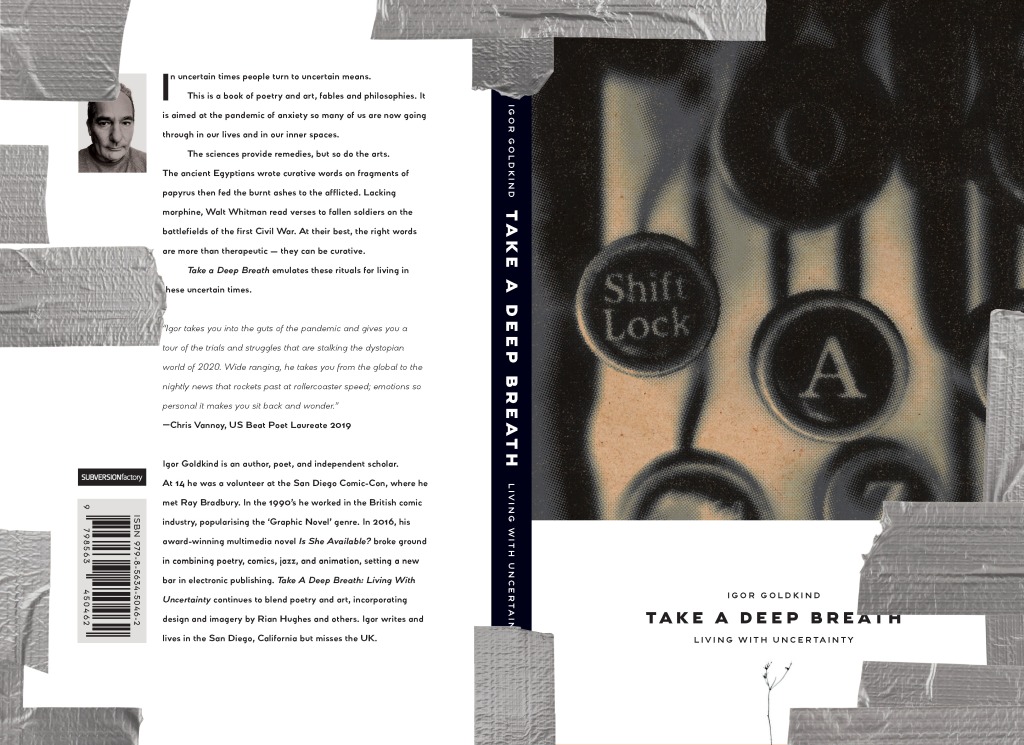
In uncertain times people turn to uncertain means. This is a book of poetry and art, of fables and philosophies aimed at the pandemic of crisis anxiety so many of us are going through right now in our daily lives and in our inner spaces. We are all of us and each us in this together.
The sciences but also the arts do provide remedies. The ancient Egyptians wrote curative words on fragments of papyrus to feed their burnt ashes to the afflicted. Lacking morphine, Walt Whitman read verses to fallen soldiers on the battlefields of the first Civil War.
At their best, the right words are more than therapeutic, they can be curative. Take a Deep Breath emulates this ritual here in administering remedies for living in these times of crisis, in living with uncertainty.
Poetry Therapy: Towards an Uncommon Sense

A Brief History of Poetry Therapy
From the collection of poetry, philosophy and art TAKE A DEEP BREATH: Living With Uncertainty
by Igor Goldkind (Chameleon Publishing, 2021)
Poetry Therapy, or poetry which is used for healing and personal growth, can be traced back to primitive Man, who used religious rites in which shamans and witchdoctors chanted poetry for the well-being of the tribe or individual. It is documented that as far back as the fourth millennium B.C.E. in ancient Egypt, words were written on papyrus and then dissolved into a solution so that they could be physically ingested by the patient and take effect as quickly as possible.
The first poetry therapist of historic record was a Roman physician by the name of Soranus in the first century A.D., who prescribed tragedy for his manic patients and comedy for those who were depressed. It is not surprising that Apollo is the god of poetry as well as medicine, since medicine and the arts were historically entwined. For many centuries the link between poetry and medicine remained obscure. The poet John Milton wrote in 1671:
“Apt words have power to swage The tumours of a troubled mind And are as balm to festered wounds.” Pennsylvania Hospital, founded in 1751 by Benjamin Franklin and the first in the United States, employed many ancillary treatments for their mental patients, including reading, writing and the publishing of their work. Dr. Benjamin Rush, called the ‘Father of American Psychiatry’, introduced music and literature. The writing of poems was was encouraged, and the results were published in The Illuminator, their own newspaper.
On the battlefields of the American Civil War, Union field medic Walt Whitman would administer recitations of verse to fallen soldiers who were well beyond hope long before the use of morphine. He was later to pen the classic Leaves of Grass, the greatest celebration of humanity in the midst of its own despair. Pennsylvania Hospital employed this approach as early as the mid- 1700s.
In the early 1800s, Dr. Benjamin Rush also introduced poetry as a form of therapy to those being treated. In 1928, Eli Greifer, an inspired poet who was a lawyer and pharmacist by profession, began a campaign to show that a poem’s didactic message has healing power. He began offering poems to people as prescriptions, and eventually started “poem-therapy” groups at two hospitals with the support of psychiatrists Dr. Jack L. Leedy and Dr. Sam Spector. After Griefer’s death, Leedy and others continued to incorporate poetry into the therapeutic group process, eventually coming together to form the Association for Poetry Therapy (APT) in 1969.
Librarians also played a major role in the development of this therapeutic approach. Arleen Hynes was a hospital librarian who began reading stories and poems aloud, thus facilitating discussions on the material and its relevance to each individual in order to better reach out to those being treated and encourage healing. She eventually developed a training program for those interested in teaching poetry therapy.
In 1980, all the leaders in the field were invited to a meeting to formalize guidelines for training and certification. At that meeting, the National Association for Poetry Therapy (NAPT) was founded. As interest grew, books and articles were published to guide practitioners in the practice. Hynes and Mary Hynes-Berry co-authored the 1986 publication Bibliotherapy — The Interactive Process: A Handbook. More recently, Nicholas Mazza outlined a model for effective 188 poetry therapy, also discussing its clinical application, in Poetry Therapy: 189 Theory and Practice.
The Journal of Poetry Therapy, established in 1987 by the NAPT, remains the most comprehensive source of information on current theory, practice, and research. There is also a relationship between psychological healing and incantations, either repeated as a musical chant by the patient or recited by the attending medicine man. Of course, modern medicine and science consider the notion of magical incantations possessing healing or restorative powers as so much superstition.
But this, of course, begs the question that if recitations and incantations had no evidential result and no beneficial property then why would have nearly every human culture have adopted the method and repeated it for thousands of years? Surely if there was no value to vibrating the air with the sound of one’s breath, rising from the abdomen, pushed upwards by the lungs, shaped by the throat, mouth and tongue, with the added stimulation of associative meanings being understood cognitively by the patient’s mind, we would have given it and its sisters, singing and chanting, up aeons ago.
I am not advocating a supernatural or spiritual causation for the effectiveness of poetry as a healing agent, but rather the supra-natural mystical cause which is grounded first in human nature and cognition, and for which there maybe a myriad of imprecise explanations, none of which can fully explain why it works. Today, poetry therapy is practiced internationally by hundreds of professionals including poets, psychologists, psychiatrists, counselors, social workers, educators and librarians. The approach has been used successfully in a number of settings — schools, community centers, libraries, hospitals, rehabilitation centers, and correctional institutions, to name a few.
SO HOW DOES POETRY THERAPY WORK?
• Poetry is beneficial to the process of introspection, and can be used as a vehicle for the expression of emotions that might otherwise be difficult to express
• Poetry promotes self-reflection and exploration, increasing selfawareness and helping individuals make sense of their world.
• Poetry helps individuals redefine their situation by opening up new ways of perceiving reality.
• Poetry helps therapists gain deeper insight into those they are treating.
In general, poetry therapists are free to choose from any poems they believe offer therapeutic value, but most tend to follow general guidelines. Some poems commonly used in therapy are: The Journey by Mary Oliver Talking to Grief by Denise Levertov The Armful by Robert Frost I Wandered Lonely as a Cloud by William Wordsworth Leaves of Grass by Walt Whitman Turtle Island by Gary Snyder as well as the poetry of Alan Watts, Allen Ginsberg and Antonin Artaud.
TECHNIQUES USED IN POETRY THERAPY
Different models of poetry therapy exist and are being refined all the time, but one the most popular is the model introduced by Nicholas Mazza. According to this model, poetry therapy involves three major components: Receptive/Prescriptive, Expressive/Creative, Symbolic/Ceremonial.
I. In the Receptive/Prescriptive component, the poet merely introduces the subject of how to focus on their own issue. The aim is to establish concentration and cognitive focus on the details, none which is revealed to the poet. Only when the poet feels confident that the subject is cognitively attuned to and non-verbally focused on the problem or issue of concern does he or she begins to ask suggestive questions as to how the subject feels, not thinks, about their issue. This provocation of tangible emotions usually comes in three distinct phases of emotional content. First is the predicament, when the subject becomes aware of the existence of the issue. This is a gateway phase, where anticipatory feelings are illicit and registered by the poet.
II. Then there is a further stage when anticipation of the issue has given way to the full experience of all the emotions, anxieties and fears related to the issue. This is usually overwhelming (or it wouldn’t be ‘an issue’ in the first place), and it is paramount that the poet guides the subject through distinct words to describe the layers of emotions experienced by the subject. The poet must ground the subject’s emotions in language. Language and the use of words is the key here, because emotions always come in complex clusters that make it difficult for both poet and subject to distinguish them and focus on the underlying causes.
“What kind of anger do you feel?”, “How would you describe your sadness?”, “How much shame do you feel? What would you compare it to?” This is a sophisticated method of word association, but rather than creating bridges between seemingly disparate words the goal is to drill down to the core emotions of the issue by refining the language, as led by the subject. Achieving exactitude of description is the task at hand. The poet makes careful notation of everything the subject says in regard to describing their emotions. It is important to keep them focused and not to succumb to intellectual distraction. Thoughts are illusions and often lies, whereas emotions are facts. Get the subject to correctly describe the facts of the matter. All meaning is metaphorical.
III. The final stage is waiting for an exit strategy. How do the feelings begin to recede? How does the issue move back into the background? What are the parting emotions? Is there anxiety about the leaving? Anticipation of an issue yet unresolved? Or is the issue impermeable, and subject to a rhythmic return? Again, the subject’s wording, their adjectives, adverbs and phrases are the material of the poem. At this point there is usually a short break to give time for the subject to recover from the emotional transitions and for the poet to briefly skim their notes and begin to focus on the flow of adjectives. It is preferable, if possible, to compose what amounts to a first draft, a flow of words which the poet can read back to the subject to confirm its accuracy.
At this first reading stage it is possible to start interjecting logical bridges between the emotional descriptors. This is the creative factor 194 unleashed. The poet, assisted by the subject, creates coherent sequences 195 between the emotional states. The poet suggests and the subject confirms or vetoes the phraseology, one line at a time. Now we arrive at a second draft which is the property of the subject. It is their poem. The preference is that the subject now reads the poem aloud and takes ownership of its content. The subject can redraft the poem a third time, or many more times, claiming it as their own. The poet has merely provided poesy prompts, the poem is the creation of the subject.
The expressive/creative component involves the use of creative writing — poetry, letters, and journal entries — for the purpose of assessment and treatment. The process of writing can be both cathartic and empowering, often freeing blocked emotions or buried memories and giving voice to one’s concerns and strengths. Some people may doubt their ability to write creatively, but therapists can offer support by explaining they do not have to use rhyme or a particular structure. Poets can also provide stem poems from which to work, or introduce sense poems for those who struggle with imagery. A poet might also share a poem with their subject and then ask them to select a line that touched them in some way, and then use that line to start their own poem. In groups, poems may be written individually or collaboratively.
Group members are sometimes given a single word, topic, or sentence stem and asked to respond to it spontaneously. The contributions of group members are compiled to create a single poem which can then be used to stimulate group discussion. The symbolic/ceremonial component involves the use of metaphors, storytelling and rituals as tools for effecting change. Metaphors, which are essentially symbols, can help individuals to explain complex emotions and experiences in a concise yet profound manner. Rituals may be particularly effective to help those who have experienced a loss or ending, such as a divorce or death of a loved one, to address their feelings around that event. Writing and then burning a letter to someone who died suddenly, for example, may be a helpful step in the process of accepting and coping with grief.
HOW CAN POETRY THERAPY HELP?
Poetry therapy has been used as part of the treatment approach for a number of concerns, including borderline personality, suicidal ideation, identity issues, perfectionism, and grief. Research shows the method is frequently a beneficial part of the treatment process. Several studies also support poetry therapy as one approach to the treatment of depression — it has been repeatedly shown to relieve depressive symptoms, improve self-esteem and self-understanding, and encourage the articulation of feelings. Researchers have also demonstrated poetry therapy’s ability to reduce anxiety and stress. Those experiencing post traumatic stress have also reported improved mental and emotional well-being as a result of poetry therapy. Some individuals who have survived trauma or abuse may have difficulty processing the experience cognitively and, as a result, suppress associated memories and emotions.
Through poetry therapy, many are able to integrate these feelings, reframe traumatic events, and develop a more positive outlook for the future. People experiencing addiction may find poetry therapy can help them explore their feelings regarding substance abuse, perceive drug use in a new light, and develop or strengthen coping skills. Poetry writing may also be a way for those with substance abuse issues to express their thoughts on treatment and behavioral change. Some studies have shown poetry therapy can be of benefit to people with schizophrenia, despite the linguistic and emotional deficits associated with the condition. Poetry writing may be a helpful method to describe mental experiences, and can allow therapists to better understand the thought processes of those they are treating.
Poetry therapy has also helped some individuals with schizophrenia to improve social functioning skills and foster more organized thought processes. It is important to note in many instances, especially in cases of moderate to severe mental health concerns, that poetry therapy is used in combination with another type of therapy and not as the sole approach to treatment.
TRAINING FOR POETRY THERAPISTS
Poetry therapists receive literary as well as clinical training to enable them to be able to select literature appropriate for the healing process. While there is no university program in poetry therapy, the International Federation for Biblio-Poetry Therapy (IFBPT), the independent credentialing body for the profession, has developed specific training requirements. Several studies support poetry therapy as one approach to the treatment of depression, as it has been repeatedly shown to relieve depressive symptoms, improve self-esteem and self-understanding, and encourage the expression of feelings.
However, the only qualitative measure of effective poetry therapy is in the poesy and the results. No accreditation can guarantee or substitute for the quality of cognitive empathy that is achieved during a successful session. Ultimately, there can be no real separation between the experience of the poet and the subject. This methodology provokes a meeting of mind in confrontation with universal truths. The poet is there merely to reassure the subject that there is no hocus-pocus, no supernatural or alternative reality, and that the cognitive associations that ring true are true in the present mind of the subject. The poet is on hand to reassure, to validate the responses of the subject to radical new perspectives into their own most intimate selves, and to relieve and dispel any accompanying trauma as grounded in the normalcy of human experience.202 203
CONCERNS AND LIMITATIONS OF POETRY THERAPY
In spite of its widespread appeal and broad range of applications, some concerns have been raised about the use of poetry therapy.
Some critics have pointed out it is possible for people to analyze a poem on a purely intellectual level, without any emotional involvement. This type of intellectualization may be more likely when complex poems are used, as a person might spend so much time trying to decipher the meaning of the poem that they lose sight of their emotions and spontaneous reactions. Poems that are unoriginal or filled with clichés are unlikely to stimulate individuals on a deep emotional level, or challenge them to think in ways promoting growth.
Just always keep in mind that poetry therapy may have little or no value for those individuals who simply do not enjoy poetry.
References:
Chavis, G.G. (2011). Poetry and story therapy: The healing power of creative expression. Philadelphia, PA: Jessica Kingsley Publishers.
Gooding, L. F. (2008). Finding your inner voice through song: Reaching adolescents with techniques common to poetry therapy and music therapy. Journal of Poetry Therapy, 21(4), 219-229.
International Federation for Biblio/Poetry Therapy. (n.d.). Summary of training requirements. Retrieved from http://ifbpt.org/obtaining-a-credential/getting-trained
Mazza, N. (2003). Poetry therapy: Theory and practice. New York: Brunner-Routledge.
Olsen-McBride, L. (2009). Examining the influence of popular music and poetry therapy on the development of therapeutic factors in groups with at-risk adolescents (Doctoral dissertation).
Rossiter, C. (2004). Blessed and delighted: An interview with Arleen Hynes, poetry therapy pioneer. Journal of Poetry Therapy, 17(4), 215-222.
https://www.facebook.com/realpoetrytherapy
realpoetrytherapy@gmail.com
On Poverty and Consciousness

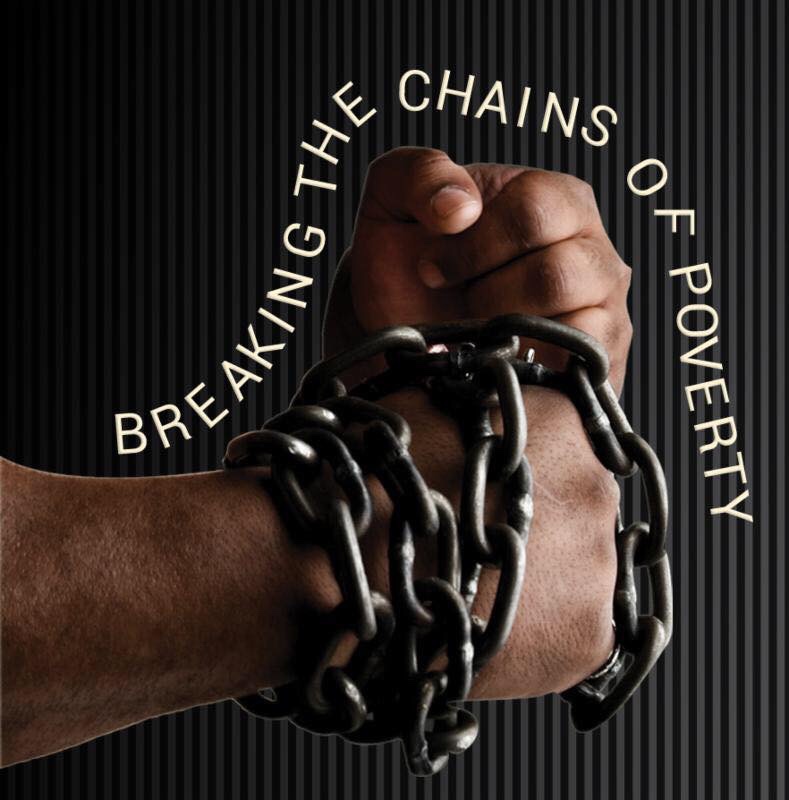 A new acquaintance asked me why I endured relative poverty and uncertainty in California when I could easily take a tech copywriting or PR job and be living comfortably.
A new acquaintance asked me why I endured relative poverty and uncertainty in California when I could easily take a tech copywriting or PR job and be living comfortably.
I answered, for which I’m sure someone reading this might wonder the same.
The answer is not simple and all has to do with my commitment to art and to the art of writing. It’s somewhat like a religious or spiritual calling; certainly as requisite of sacrifice and discipline as a monastery. (Read James Joyce’s Portrait of an Artist as a Young Man, if you need further elucidation on the subject). To become a great artist, which is what I believe I am becoming at this late stage of my life (or will at least die trying to be), takes total focus and constant dedication.
Not just to creation but to observation. Many of my best friends are not just poets and artists but scientists and mathematicians because they are processing their own observations through their own disciplines. When we talk and share words they read me and hear me, they comprehend how we’re all pursuing the same thing: the truth about life and the lives we are living.
Science and Art are really just two different vantage points in the same universe. During our Rennaisance there was no such separation between science, engineering and art. Just look at Da Vincis’s sketches if you don’t believe me. And this underlines the true failing of the formal education systems. No purely structured system can account for, much less process the unstructured data of experience.
But one truth I have learnt along this way is that we are all connected; both as a species and as sentient beings. Not just to those existing in the moment we all share but for all of us, from the very beginnings of awareness and rational self-consciousness. We are all brothers and sisters of the same mind, the same awareness that is awake and cognicent.
We all share the same biology of the mind.
I imagine that when extraterrestrial sentient life is contacted, it will be the poets and artists most open to the new who will not only best describe and communicate qualitative meanings with them but decipher their language(s) to communicate with them (more of “us”?), before the actual scientists can interpret their data and the military can rationalize the threat.
From the point of commonality; this sentience itself has a common shape or form in all of us throughout time and geography. It is our human nature.
My words try to sketch its outline.
Without needing to name a god, the Buddhists have been attempting to describe this commonality of all sentient beings, for thousands of years. In art and yes, in poetry too.
It’s what poetry is for: to describe the indescribable that is true for all of us, to all of us.
The known shining its single torch down a darkened corridor to the unknown.
The unknown (not the unknowable), has always been our mind’s final frontier.
We weren’t born yesterday. We did not just become aware of consciousness. The history of consciousness is the history of us, of the ‘you’ that is reading and comprehending these words.
You are no different in awareness than the Neanderthal who stumbled out of her cave and looked up at the stars in wonder. Every astronomer I have ever known harbors that exact same wonder. Our tools maybe bigger, faster and deadlier but our minds haven’t changed, just adapted to our tools. They’re physiologically still the same; and only enhanced by the evolution of language, both associative, symbolic and metaphoric.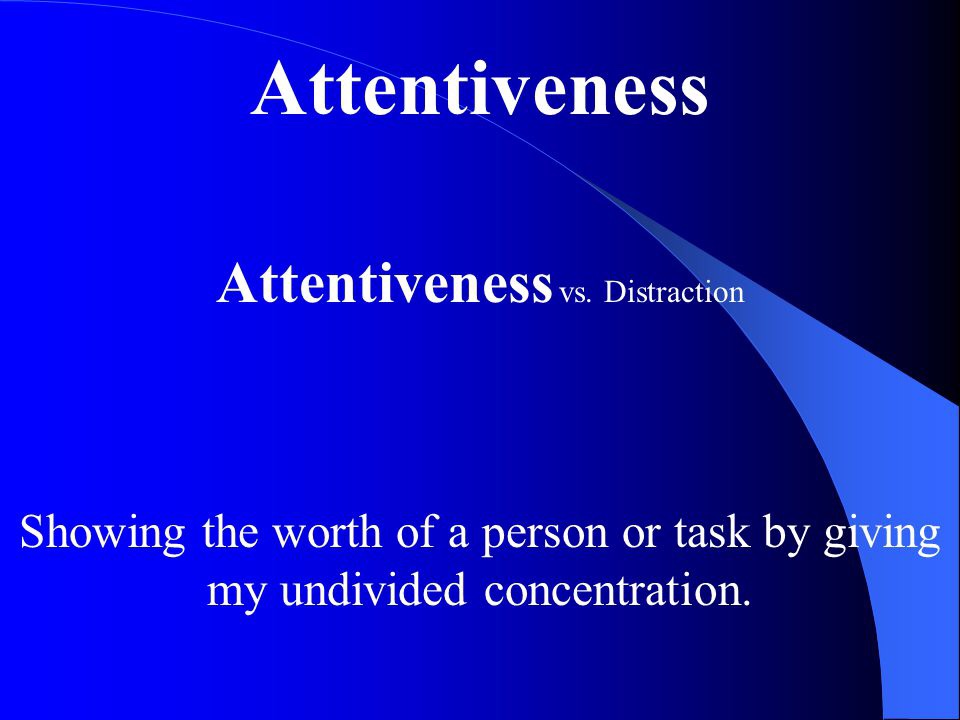
This is where we alll connect. The commonality of our senses’ perception and their comprehension. This is what is meant by ‘realisation’. When we make the world real. When we realise that the truths we know from our senses connect us to the world as intimately as to each other.
These are the materials I use to create art.
But why not get a day job?
I will have to.
I have learned all I can stomach for now about the tangible reality of poverty. I have made some great and tragic friends outside my walls of privilege and comfort. But when I first detected my dwindling resources, I panicked. I borrowed gas money from friends, slept in beachside campsites for free and spent too many days in chic cafes nursing one cup of coffee and a refill just to write, just to connect with the non poverished. I. applied for every job I was qualified for and hustled my books even harder.
But this did not avert my panic and the fear, until it passed of its own. And you already knnow: nothing is ever as bad or as long as we first imagine it to be. That’s when I understood how many of my needs, weren’t needs at all and that I could live without the comforting requisites of a middle class existence, just fine. In some ways better.
Less consumption = less waste.There’s what I want and what I can have and if I diminish my wants, I can have have everything I want.
When you don’t have any money, you don’t spend any money and that initself is a good thing.
The last argument that pursuaded me of the virtue of experiencing this lifestyle is that if I really wanted to write for wider audience in a profound and meaningful way, that I might need to understand and empathize with the truth of our human condition across the entire economic spectrum, not just those who can afford to buy books
And the truth is that the vast majority of “us”do not live a middle class lifestyle and that the majority of “us” struggle every day to earn what is called a living and yet seldom ressembles it.
I have met so many, so many poor people living on the streets in one of the wealthiest cities in the wealthiest state in the union, in the wealthiest nation in the world.
None of us can afford to rest within our illusion of justice and freedom until poverty is no longer the default state of the human condition in America. Remember, poverty is a prison from which escape is difficult. But if we truly want to say that we live in the land of the free, then we must free our citizens from the prison of poverty.They are “us” as well. Not charitable”us”, not pitiful “us”, not lazy, drug taking, alcoholic “us”.
Just us.
I have talked in depth with enough of the so-called “homeless”. to recognize them for who they really are: The Poor. You know, those people Jesus was always talking about and Charles Dickens and Emile Zola wrote about? The idea that those without homes choose to live that way is a bigoted urban myth that need to be quashed.
Yes, may of the poor have real problems with alcohol, drugs and severe mental illness. But so does every other group and class of people I have ever known. The rich and the middle class aren’t exempt from alcohol, drugs and craziness; in fact they can afford more!
How then are we less connected as human beings?
Or is “humaness” only measured by level of income?
When I moved back to California to look after my mother, I was immediately struck by the avalanche of poverty that had engulfed my home town. As is every other foreign visitor to California, by the way. No tour of Balboa Park or visit to Sea World can eradicate the open poverty that everyone can see on the streets of San Diego. Which now more closely ressemble the streets of Port-au-Prince, Haiti or the extreme poverty that can be found in some places in Mexico, than any American city.
The first thing that went was the last vestage of regional or even national pride.
It is a crime against humanity for so rich a city as San Diego to maintain the level of homeless poverty that is evident to anyone who visits us. It is “our” fault. Because we are also connected to the impoverished and the socially weak.
You know, what Jesus was saying.
If I am to write the truth for those who want to read or hear the truth, then I ought to know what is lying outside the walls my middle class habits and worldview. What is it really like, not just for the impoverished but for the vast majority of Californians who also now live beyond the walls of middle class sensibilities, paycheck by paycheck?
Haunted by the memories of its long gone comforts.
What does it mean to be a human being living in America right now, in 2020. Aren’t we all supposed to have jertpacks by now?
What is the Truth of our American selves?
As Tony Morriosn said “The whole point of freedom is to free others”.
To my friends who have offered their support, I thank each one of you.
I will never forget your kindness and your humaness.

Yes I have a new book coming out in the fast approaching Spring.
It’s entitled TAKE A DEEP BREATH, A Book of Remedies and will feature much of the writing and accounts of experiences of truth that I have had living in California these last 5 years.
I hope that you will take a look.
Poetry Therapy

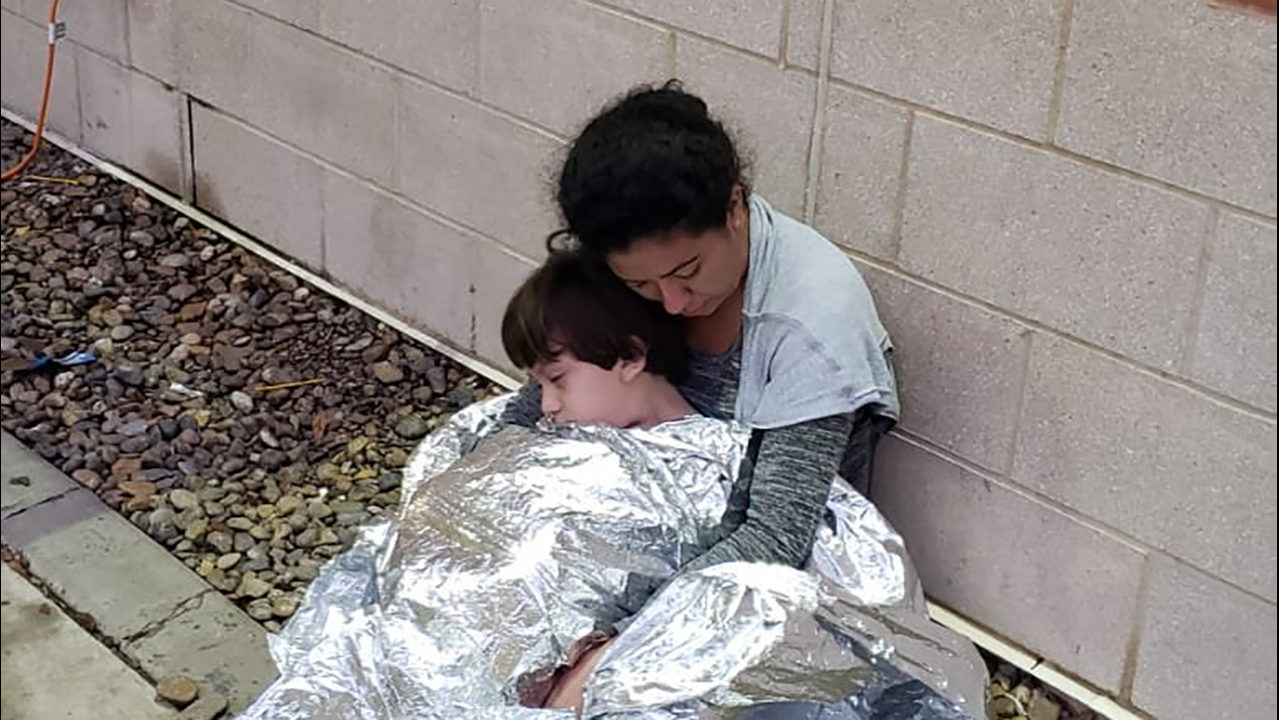
Everyone wants to be free.
ven from the things that once gave us comfort.
We are like children who swap our blankets
For softer ground.
So why do you wait to be free
When the keys to your cage
Are hanging right outside your front door?
Reach through the bars with your hand
Stretch your fingers far and bend your will around the bars.
Your mind is your best friend, your best teacher, your best doctor,
Whether you believe it or not.
In spite of everything you’ve done to yourself,
Your mind really does care about you and often thinks of you, quite fondly.
Just let your mind mend itself
Heal yourself with a few choice words.
Your own words.
When you say:
The truth is not a cold tombstone
The truth is not a judgement
The truth is a flowering realisation inside your own living mind.
Pulling you outwards, & forwards, enraptured by Time.
When my breath and
My will are as one,
The universe swallows me
Whole.
The Stars

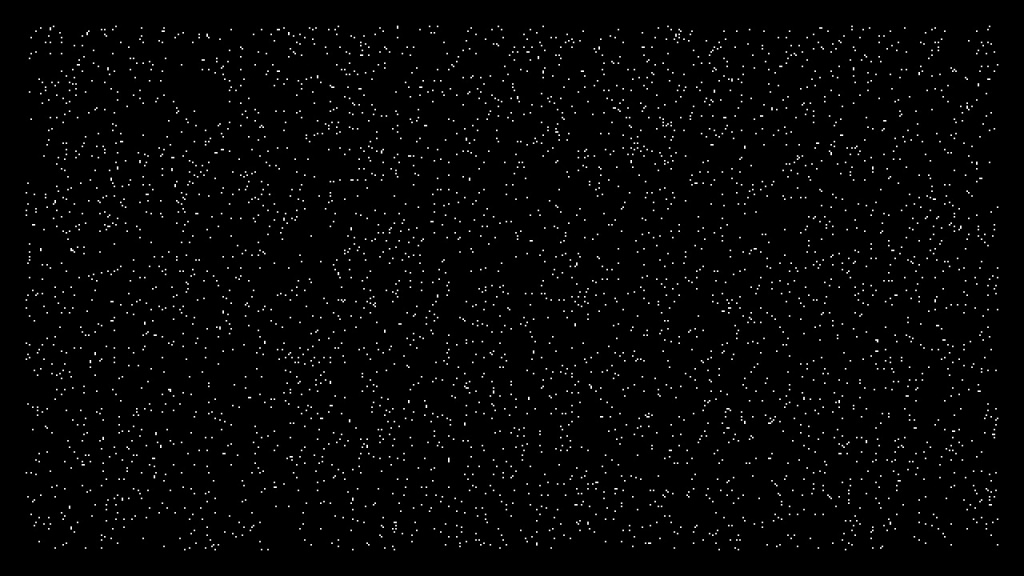
There are few shreds of dignity left
When you drown face down in your own back street gutter.
You can cry out as loud as an archangel’s horn, if you like.
It won’t do you any good, or any harm either.
You still can’t silence the wind or turn back the tide.
Fate is nothing personal.

It’s just the universe catching up and then passing you by.
Your dream of yourself evaporates,
Forming clouds that obscure the night’s sky.
The stars are leaving you now, blinking out one by one.
This is the last moment of your own
self-awareness.
Your last chance to figure out what the fuck’s been going on.
It’s very much like the moment you first awoke
Although your mother’s smile is nowhere to be found
All that remains of her unlimited love is your fast fading memory
The sound of her voice calling out to you to come home now,
In the far distance,
From where the stars have gone to mourn your passing.

Our Lady

You are our lady
And now your dress
Is flames.
The beauty of your sunken dome from a drone
Is a poem in itself.
Written by us and
Destroyed by chaos.
This is what we do that rivals the stature of the gods:
To astound ourselves and each other,
With the wonder of
Pure enduring creation.
The sacrifice we all make to our better selves
Who gave buildings wings and
Lay the foundation stones of
Our own perfecting.
Epiphany is not found in the act of worship
It is found in the insight gained by a gratitude for the world.
Exactly the way we built it.
Exactly the way we know it to be.
Whispered prayers are but poetry
That none other than you will listen to.
It is good to talk to yourself,
To sing in harmony with all the selves who are listening,
Wearing
Not false, but true masks
Revealing the kind of truth that can only be told with a lie.
The subtler architecture that carves heavens into the spaces on this earth.
Reconstructing what can be seen behind your faces,
Behind all the saints who guard you,
Behind the divine grace of your stature.
The sensuousness of your catastrophe is breathtaking.

© Igor Goldkind 2019
Confetti

There’s an emptiness at the heart of any space:
The air that escapes a room; an unanswered echo, a vacant womb.
There’s an emptiness in my heart
That reminds me
All of my ideas are empty.
Floating leaves from a fumbled folder.
Coloured streams falling from the sky.
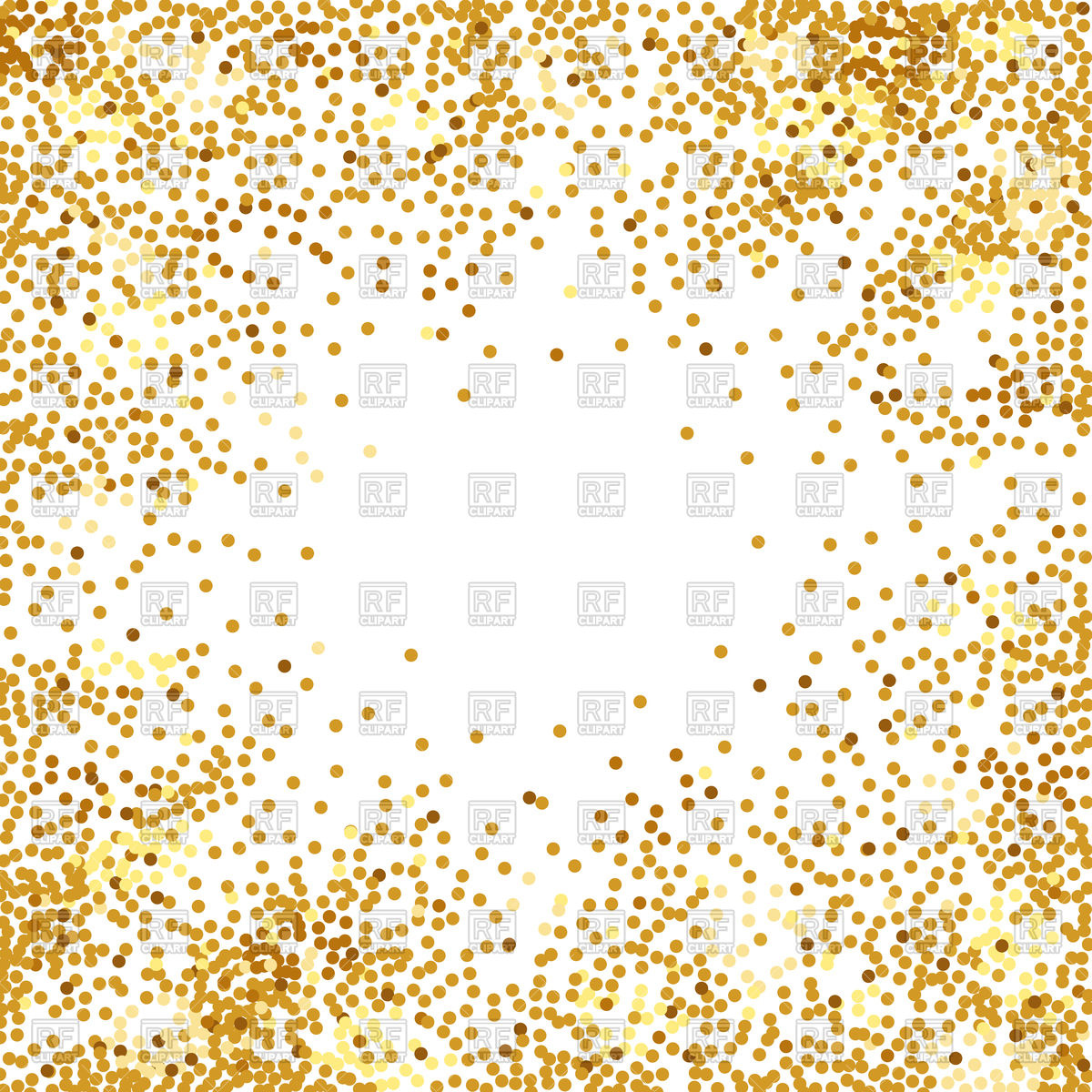
This emptiness reminds me
How slight my desires really are
How gently they fall from the sky
A confetti of mercy and discarded emotions,
They are in the end,
Compared to nothing,
Merely the litter from an emptied mind.
Let Your Mind Run Free!


Let You Mind Run Free
If you love your mind just let it go.
If you lose your mind, don’t worry.
It will find you again, eventually.
Trekking across the tundra,
Scaling the icy ridges
Crossing a vale of tears.
At midnight in the Dead of the Night.
Just to get back home to you.
Merely moonlight pausing to reflect upon still waters
No need to be concerned.
In future, make sure your back gate latch is secure
Before letting your mind run free.
Let Your Mind Run Free II
If you love your mind just let it go.
If you lose your mind, don’t worry.
It will find you again, eventually.
Trekking across the tundra; scaling the icy ridges
Crossing a vale of tears.
At midnight in the Dead of the Night.
Your mind will tap you on the shoulder
You’ll jump
And your mind will say ‘Well, here you are’!
Sitting alone in the last place I looked.
While I am
Merely moonlight pausing to reflect upon still waters.
There’s no need to be concerned.
Next time, just make sure your back gate is securely latched
Before you let your mind run free.
One Without the Other

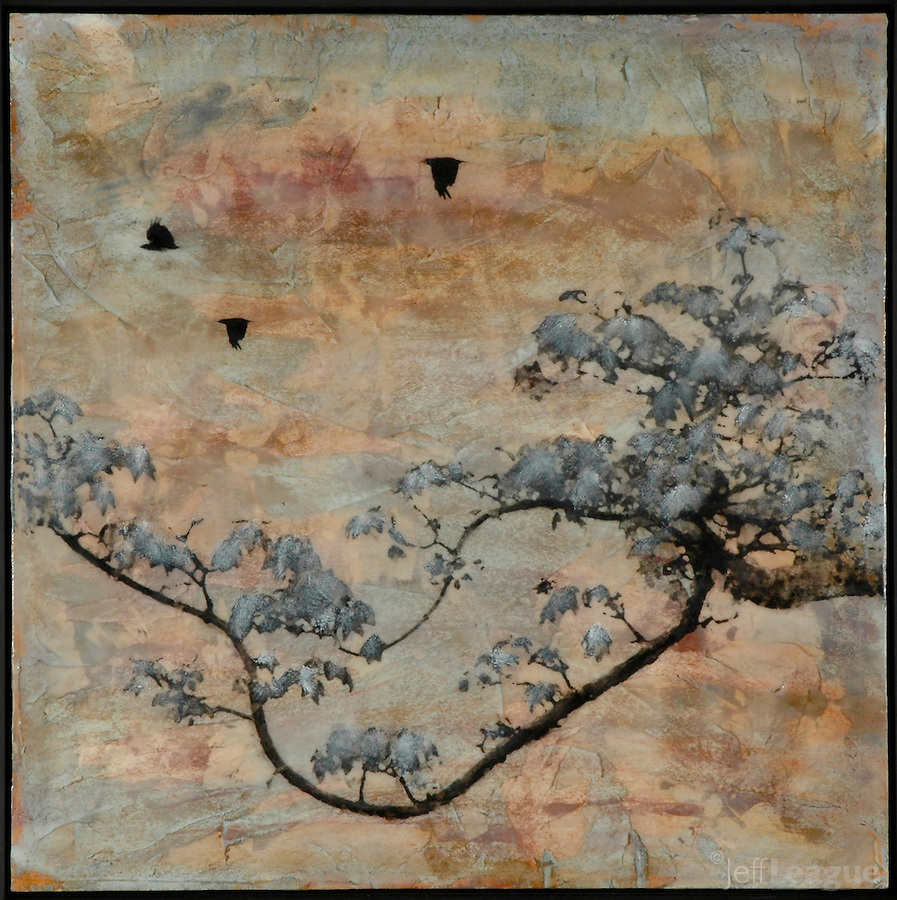
Life and death are dark and light.
Like black and white,
You need one to see the other.
For without the other,
You will never see the one.
Being is Becoming Still


Existence is a limitless screen of emptiness
Vibrant with jubilant celebrations.
And gratitude for the joy in rolling a boulder blissfully up this steep hill.
Tripping over our own thoughts like loosened cobblestones,
We no longer see the reality directly in front of us.
The truth is a truce we struck with certainty ages ago.
After losing the desperate struggle…
To cling to some kind of hope buried deep beneath the root of ourselves.
I am fearful of fully failing myself and yet
I love myself best when I am alone with eternity.
This is What Happens After You Die


This is What Happens After You Die
I’m still choking on my own blood.
As it slowly fills my lungs.
I am drowning inside myself
The blood is mine;
the air is gone,
Now so am I.
After death, there’s nothing more than that same familiar empty space
waiting for your thoughts to refill it
Infinite & Eternal
in every direction;.
both up and down and beyond before.
encircled by the horizon.
This emptiness where your awareness doesn’t so much ‘go’
as recollect that it’s always been here.
Look through this persisting dream!
there is no afterlife because nothing,
not even memory, is really destroyed.
just transformed.
Into particles
into wavicles
into higher frequencies,
your mind no longer fathoms.
so you leave it,
your mind, behind.
Crystal
liquid,
gas,
plasma.
aware is the fifth state of matter.
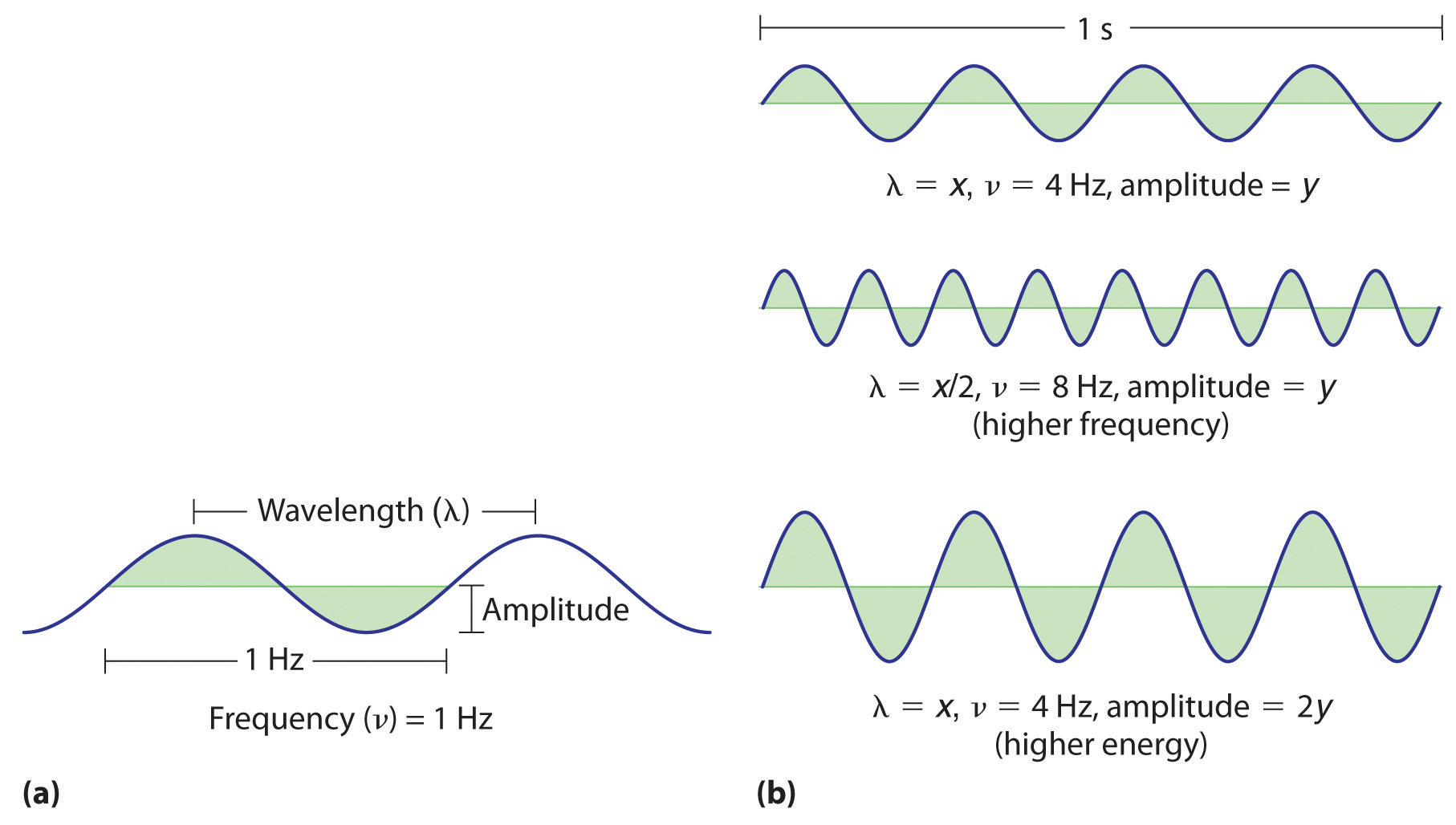
I Want To Be Just Like Socrates

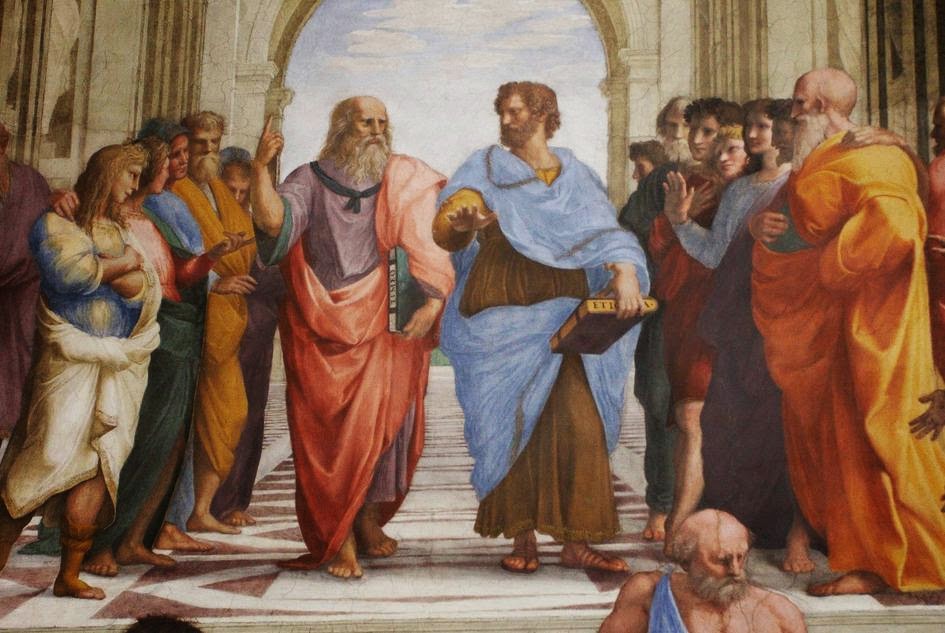
Ever since I returned from England, and discovered to my consternation, that no real path to a teaching career was open to me without a specifically California teaching credential, I’ve been looking for fulfilment outside of a cubicle inside a cubicle, inside another cubicle…you get the picture.
This in spite of my teaching for some years at the University of Liverpool at a full professor’s salary and the Oxford University Internet Institute at a considerably less salary. As well as guest lecturing at St. Martin’s School of Design, the London School of Printing and the University of Lincolnshire’s graduate program),
As I have not the means to afford to both pay and live for a year’s teaching credential (nor necessarily would agree with the manner and criterion by which that credential is achieved), I have made a point of teaching any and everyone who wants to learn and will bother to listen.
Education should not only be free to those that cannot afford it, but it should flow freely from those that have it to anyone who wants it. Teaching is not a skill, it’s a disposition. It’s an interactive sport. Not all great achievers in the arts or the sciences have that disposition.
Teaching in the Starbucks forum is my revenge on what has become since I departed the US in the early 1980s, the Business of Education. The California educational system has become a money making scam by institutions colluding with banks to profit off of student debt.
A Scholarly education is no longer relevant or desirable; it’s about acquiring credentials which of course must be purchased more readily than earnt. Thinking originally or independently of a hiring institution poses a threat to that very institution. Thinking differently might bring about change and the risk of losing power over others.
Of course, there are many exceptions, I have friends from high school and college who are to this day conscientious, curiosity-driven teachers, researchers and college professors. In that sentence distinguishing between the teacher and professor, I expose my level of submission to status and accreditation. Neither of which has anything to do with the scholarly pursuit of knowledge in order to cultivate wisdom.
The sure sign of a good teacher is not their credential, status or the number of degrees, but if they are focussed enough on continuously learning and re-learning their subject through their students and the actual experience of teaching.
Teachers and professors who are in education for the status become administrators and bureaucrats, ironically adding to the very obstacles teaching teachers must surmount just to do their job and teach their subject.
Teaching is not a job like selling insurance to the elderly who are too confused to know they are signing their life savings away; teaching is a vocation. It takes endless study and self-scrutiny. It takes listening to and learning from students outside of the educational caste system.
So since the institutions won’t accept me without taking the prerequisite bank loan so as to accumulate debt and pay interest to the banks, Starbucks and the streetcorner are my classrooms. The park, the beach, a dive bar, a brewery, an art gallery, the library and yes, even the streets where the public and members of every class are allowed to circulate freely without being hassled by the authorities.
Everywhere I go I strike up conversations with the people around me. (No, not everyone. I’m not a public nuisance.!) Instead, I stay in one place until the carousel of human activity aligns someone into non-threatening social proximity. Even then, I am cautious, seductive. I really don’t want to disturb anyone, just engage them.
The old and the young are the best. The old because most people ignore them as they have nothing to offer the perpetually youthful society. The young because they are not yet quite jaded and curious as to why someone twice or nearly sometimes nearly thrice their age would want to talk to them. I treat most people the same and people younger than me find that attractive. I don’t condescend, rather I enquire. I ask a lot of questions and most people do like to talk about themselves.
The characters I have written and are currently writing all stem from what I am able to capture in the wilds of a Starbucks or a sidewalk street corner. And then I teach. I teach people how to think. Not by telling them how to or what to think but by taking their trains of thought and passing them through my station and asking a lot of questions.
Some folk disembark and stroll around my lack of conformity. They breathe the rare air of freedom as there is nothing that I prohibit them from doing or saying; unless of course, it causes harm. My lack of inhibition is contagious and people tell me things, particularly the elderly that they would never tell a stranger, although I am one. Those that linger become my friends over time.
Others just can back on board their train and depart my station.
We don’t always agree but we do respect each other which grants another kind of freedom. The freedom to be yourself a reprieve from having to perform your self for the estimated sake of others.
A psychiatrist once asked me if I considered myself a nonconformist. I assured her that I wasn’t, that I was normal it seemed to be everyone else that was a little off centre. Besides, I continued, I am always trying to conform. Not to convention or others but to myself.
I struggle to conform to the person I strive to be.

Suicide Note:

There are still a few options available to you still, apart from death.
Yours is a free choice.
Your death is yours.
No one is making you choose;
Death is after all, inevitable.
Not so much an option as fast forwarding to the point where there are no further options.
Living is dying anyway, so why speed up the process?
To stop the pain?
Many have endured much more
Still clinging to any delay of the inevitable.
Regardless, suicide doesn’t stop the pain it merely passes the suffering on to someone else.
Remember them?
They remember you.
They will remember you with pain.
You no longer feel of worth or of value anymore?
To whom, exactly? yourself?
Perhaps your judgement is drunk or wanting in discernment?
Perhaps your judgement is just wrong and awaits over-ruling by a higher judgement.
Who are you, really, to judge yourself so severely?
If you are worthless then your judgement is suspect and certainly not worth acting upon.
What if you went and saw a movie instead?
Or got drunk?
Or went to sleep?
Or made love until the dawn found another, better judgement to wake up to.
A truer, more temperate version of yourself.
One who can solve problems and get you out of the sweet jam you’re stuck in.
Do you long to die because life is absurd and void of meaning?
What took you so long to notice?
Does your slowness make you want to do things quicker?
Instead of death, you could seek laughter, which is really a form of dying;
A release from the known into the unknown by way of
Catching your breath inside its own rhythm.
Inwards and outwards.
What if you were about to hear a joke you’ve never heard before?
That made you laugh so hard that it woke you up into the wide-eyed, open world that embraces this one?
If you die now, you will miss hearing the eternal joke
That would awaken you to a world where you no longer wanted to die
Because you suddenly found yourself here,
Where you belong
Where you belonged all along,
Not living or dying
But blinking and breathing like this,
Like this, like this, like this…
©Igor Goldkind 2018
5 Submissions of My Latest Work

Life is Always Replaceable
Being is Becoming Still
Existence is a limitless screen of emptiness,
Insomniac Awareness
The Last Halo of Hope.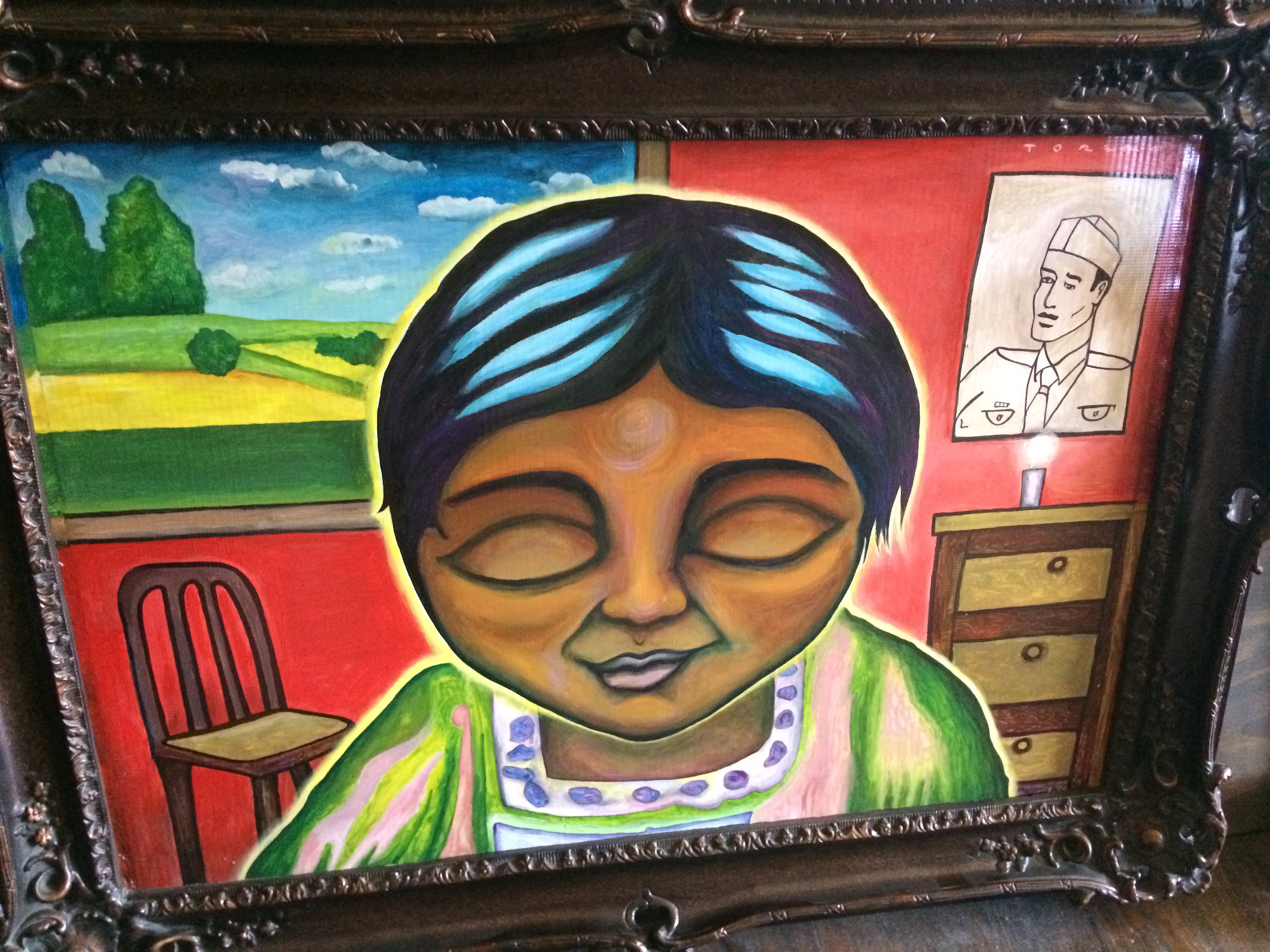
Pebbles
Meditations on My Self

This morning after sitting around and paying attention to nothing for a long while, the pedestrian thought that loitered and would not keep moving down the sidewalk became a realisation.
My self, which I know is an illusion, a trick of perception, occupies too much of my time. I know this fully with my mind even if my heart still clings to safe delusions.
The easiest thoughts to dismiss are the good ones, the comforting ones. The memories of past loves long gone. My mother’s unconditional love, my sister’s devoted, admiring love. The eulogies and compliments I’ve received over time from those who have borne the patience to get to know me just a little bit beyond our facades.
The pleasure I took in surprising my friends with my true nature is easily exiled, easily erased from the Book of Illusion resting on my dusty shelf. But today I awakened to the fact that so it is of the slings and arrows my memory flings at me. The regrets, the failures, the self-loathing for being so much less than I imagine myself to be.
I have welcomed hatred like a long lost friend. When I am targeted by malice or false accusations, I somewhere believe that I am well deserving of acrimony; that deep within me is a broken porcelain doll wearing a torn, stained dress. 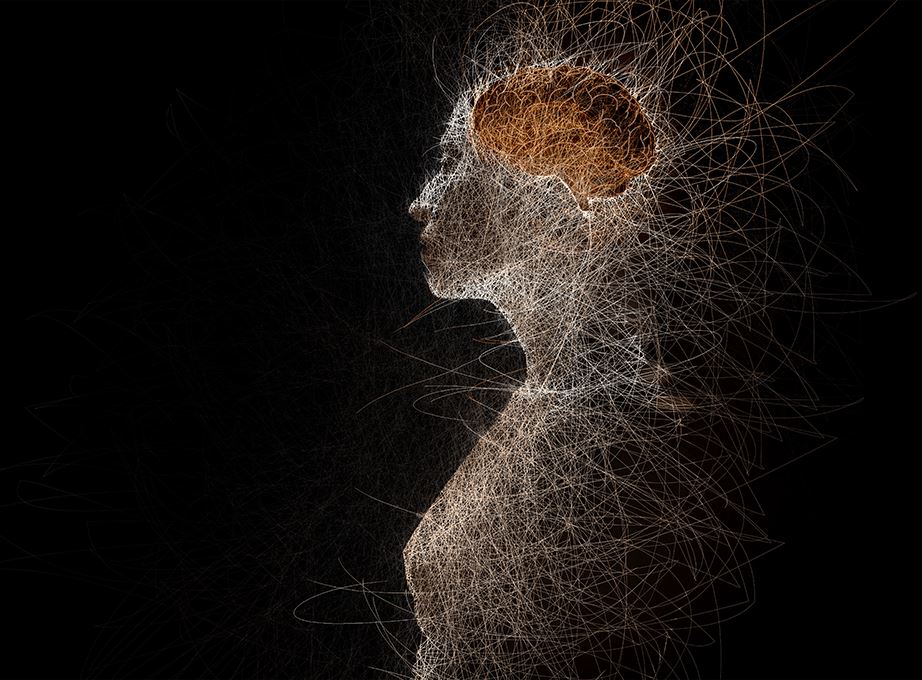 I have sought refuge in self-hatred, in depression, in the idle futility of it all.
I have sought refuge in self-hatred, in depression, in the idle futility of it all.
After all, cynicism is just another mask worn by our own complacency.
This morning, the light shone on me and I laughed at how insidious my vanity could be. To soak in self-loathing is as deluded as celebrating false glories. None of my past is real apart from what I insist on carrying into this present like a troublesome burden; weighing down my footsteps. Stalling the will to keep on moving, with the current, a little further down the road. Misery, the sister of Narcissus, loves company and the good liquor I buy her. But she’s too needy and crazy and no real friend of mind.
I may feel brave wrestling with my demons but they are in truth, made of the same scattered dust as my angels.
My Buddha tells me that enlightenment lies in the transcendence of seeming dualities. The trick of mind in seeing beyond black and white to the full spectrum and subtleties of the colors surrounding me. I can hold my inner sense of self, both magnanimous and self-damning, one in each hand and then bring those hands together, accepting both as one simultaneous truth.
I can know myself completely, even the parts left out.
Rumi says that beyond right and wrong, beyond good and evil, lies the desert of disillusionment.
At the end of the desert there is an oasis and in the middle of the oasis is a fountain and that fountain is the source of all Life.
Do me a favour, next time you feel down about yourself, undeserving of love, miserable and useless; do not blow the feelings away but rather hold them in one hand. Then with the other hand conjure the feelings of pride, of self-worth of glorious love. Hold each sense of yourself like a ball in each of your hands while substituting either/or with both/and. Now bring your hands together in gratitude for the whole of who you are.
Tell me how that feels.
Write it here, just beneath these words.
The Halo of a Hope


Hope is mortal, not eternal.
Though it may feel like eternity
Sitting in a chair by the window.
Gazing up and down the path that leads
Up the hill and down to the canyon on your doorstep.
Every morning, every evening, every day.
Waiting for an answer to your prayer for hope to be restored.
Resilience rewarded
Patience still burning brightly
Under your old photograph on the wall where you live now.
I’m not sad.
No, sadness is just passing rain to irrigate the eyes.
Instead, I’m a new planet
Ringed by the last halo of hope
The one wrapped tightly around my head.

Pebbles

Pebbles
Thoughts are merely pebbles
Being gently washed by a passing stream.
You are the stream.
Beach Pebbles
Thoughts are merely beach pebbles
Being gently rounded by passing waves.
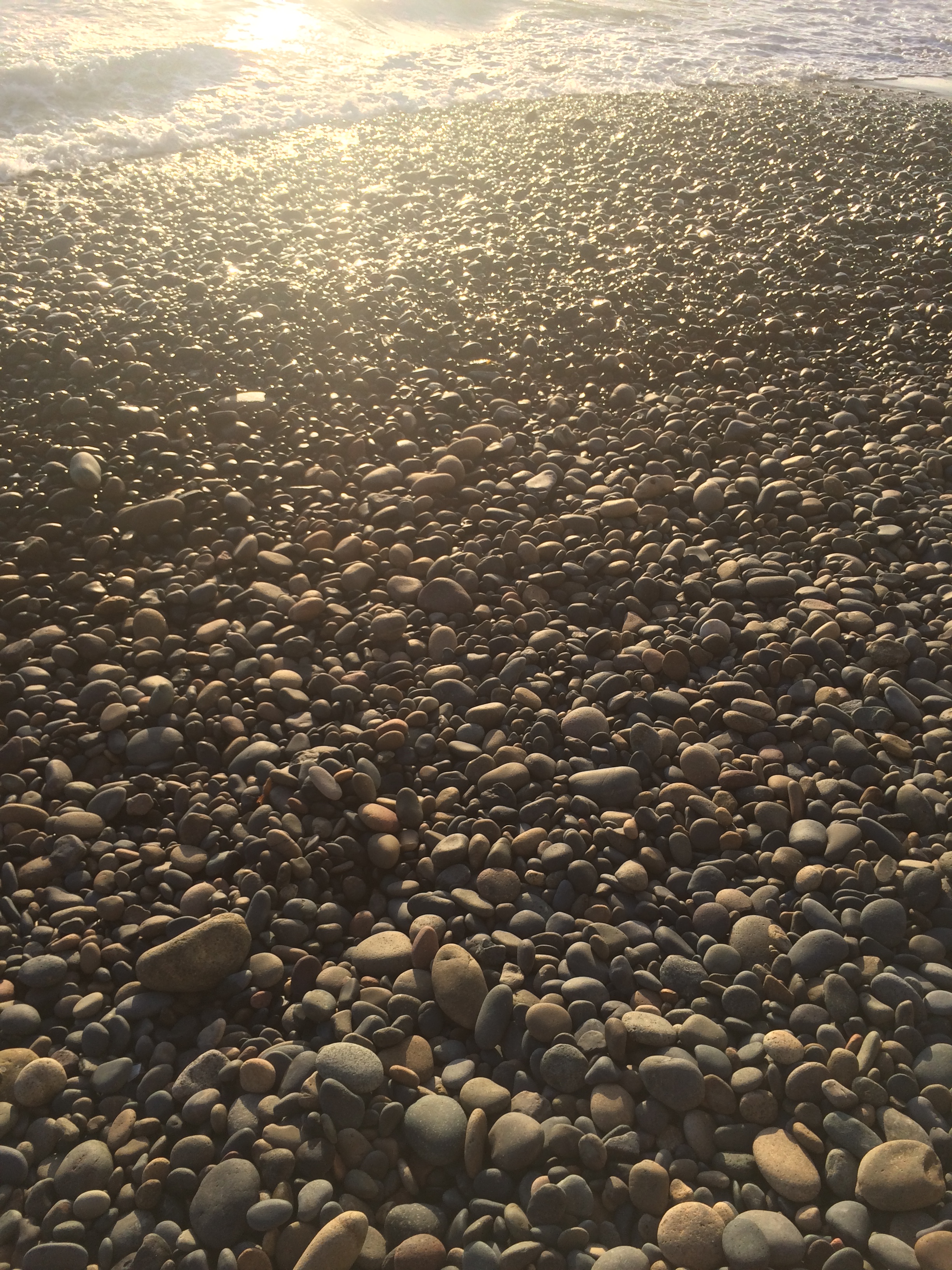
Pebbles
You are the waves.
Sand Pebbles
Thoughts are merely pebbles in the sand.
Being gently worn by the passing wind.
You are the wind.
Words are pebbles.
Words are merely thoughts
Being gently read by a passing eye.
You are the eyes
That can read my thoughts.
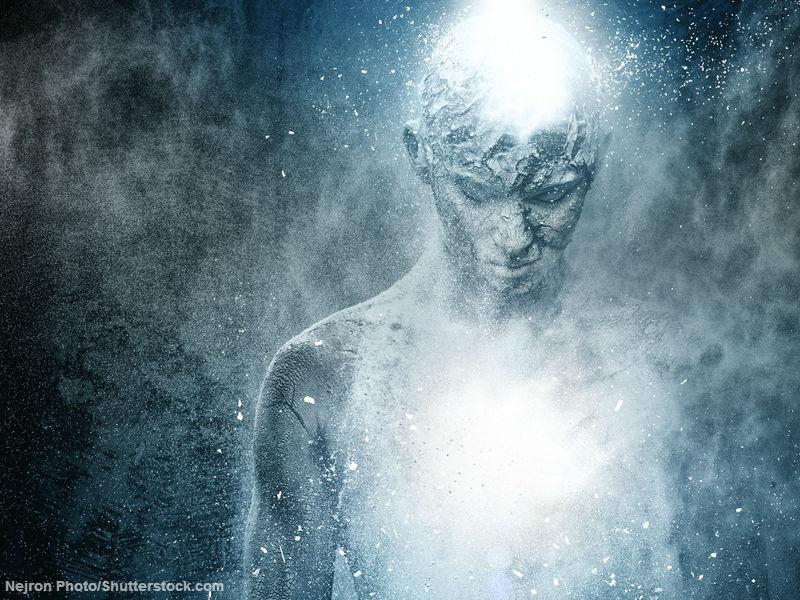
Thoughts
Being is Becoming Still

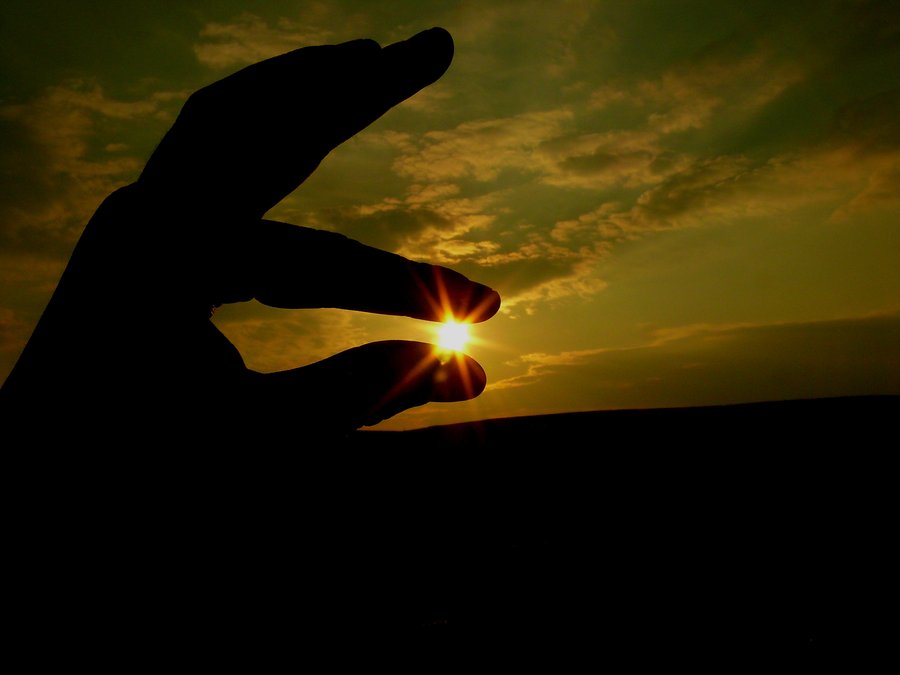
Existence is a limitless screen of emptiness,
Jubilant celebration
And gratitude for the joyous exhaustion in the rolling of a boulder up a steep hill.
Tripping over our thoughts like loosened cobblestones,
The truth is a truce we struck with uncertainty ages ago.
After losing our desperate struggle…
To cling to some kind of hope buried deep at the root of our own awareness
I am fearful of fully failing myself.
But I love myself best when I am alone with eternity.
Secure and supported by this very clarity.
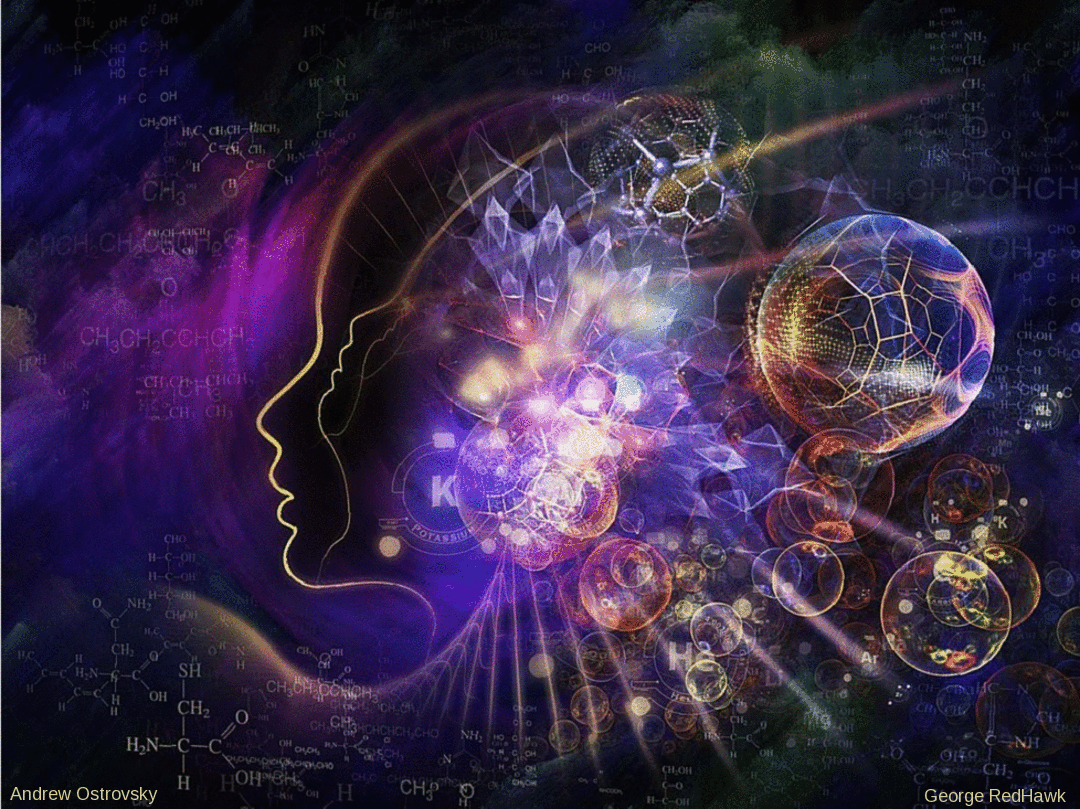
“We confuse the world as talked about, described, and measured with the world which actually is. We are sick with a fascination for the useful tools of names, of symbols, signs, conceptions, ideas and numbers.” ~ Alan Watts

The Numbers Game
In the end, it was the numbers that did us in.
They lined us up into military rows
And assigned us all numbers
One after one after one after one after one….
How many, nobody knows.
You see, it’s a numbers game
It’s all the same
You’re not your name
You’re your numbers.
Let me explain how it’s done,
And how this game can never be won.
See, there are good numbers and bad numbers
High numbers and sad numbers.
Sometimes high numbers are good and low numbers are bad
And sometimes low numbers are good and high numbers are sad.
It all depends on who is counting.
Not you or me
Not the numbers either.
They don’t know, they’re just numbers after all.
Although…
The numbers are counting on each other.
Just not you or me
Because we will never be free
Of Big Numbers and small numbers,
Negative numbers and imaginary numbers,
You see, it’s a numbers game.
It’s all the same
You’re not your name
You’re your numbers.
Let me explain
How it’s done.
And how this game can never be won.
 Prisoner number…
Prisoner number…
Credit Score number
GPA number
SAT Number
Zip code number
Blood pressure number
Heart rate number
DOB & TOD numbers
House number
Gas number
Phone number
Electricity number
Room number
Water number
Dog tags number
Social Security number
Bank account number
Table number
Sibling number
Temperature number
Flight number
License number
Vehicle registration number
Alcohol level number
Height, weight and age number
I hear you scream:
“I’m not a number, I’m a human being!!”
Sure you are,
Now take a number.
It’s for your own protection
There’s safety in numbers.
Numbers can answer all of your questions:
How far, how long, how deep, how high, how many,
How often?
Just not ‘how come’?
Anyone can count,
But you can’t count on anyone.
See, it’s a numbers game
That can’t be won
It’s a numbers game
It’s just how it’s done.
It’s all the same.
You’re not your name
You’re your numbers.
Now count to ten
And start all over again.
For Rob Thompson who asked me if Numbers occupy Space.
I Am A Paper Bag

I am a paper bag, I am.
I am only as good as what I can carry.
I am a paper bag, I am.
I’m not the smart one,
I’m not the successful one.
I’m not the tall one who always won and
Then died.
I am a paper bag.
I’m only as good as what I can carry.
I am a paper bag,
I’m not plastic or burlap, not I.
I am paper: rough, brown and thin
I’m not waterproof, you know.
And I can’t hold any liquids or gases within.
I only have the energy for stuff that really matters.
I’m a paper bag.
I’m only as good as what I can carry.
I am a paper bag.
Wrinkled and used and too often abused
Thrown on the floor.
Buried deep inside your drawers.
I am a paper bag.
I cannot ask you for anything more
I’m only as good as what I can carry.
©IgorGoldkind 2018
A Drinking Song: The Ghosts of Christmas Past and Present

Last night was kind of my XXXmas eve, being a Saturday night, with no ghosts to placate until Monday morning. So I took my Victory out for a long ride, 46 miles down to Chula Vista to drop in on my drunken-angel-poet-brothers Alex Bosworth and Chris Vannoy. As I told them, I’ve never stopped in Chula Vista before, only passed through it; well on my way to crossing the border between Mexico and Madness.
Back in the Beatnik Days, when America was still a Great Shining Beacon of Golden Intentions and jail-breaking freedoms, going south of the border was a euphemism for leaving the straight rational world and exploring the psychedelic corridors and hallways of the unconscious mind, where the muses played poker to the sound of Gabriel’s saxophone under a streetlamp, playing for spare change, playing for the end of time. Kesey, Cassidy, Timothy Leary had all spent time south of the border, hiding from the authority.
But I wasn’t going all the way south or crossing any borders. Instead, like a Boddhisatva practising the discipline of worldly compassion, I was riding south on the great American highway stopping just short of going over the edge. Stopping long enough for the rest of my sentient species to hop on board and cross over with me. How long I gotta wait? The blur of the wind in my eyes transforms Inter-state 5 into a two-lane river of white headlight diamonds on one end heading towards but past me and on the other end, a torrent of glistening rubies speeding with me, flowing around me, carrying me forwards in one high speed direction.
I was carried on a slipstream of glistening rubies last night. Chilled legs wrapped around my angel in flight, carrying me aloft above all thought, beyond all hesitation, in that dangerous living moment when every half second of thought is solid and real with consequence; and any distraction is a trap door thumping open under the hangman’s rope.
That is the fury of mediation. That is my arrival in this moment that we all share. The calm at the center of chaos. Join me, dear reader, at the centre of chaos.
So I’m heading south armed with an unopened bottle of rye, the spirit of the season travels with me. Good whisky is about as spiritual as I get these days. It is my usual Xmas tradition to grab a bottle of good booze and head down to the Greyhound station, or the street corner, outside a homeless shelter or an alleyway or anywhere I can find and join a cluster of the disaffected, the homeless, the pointless, the ones left out of family portraits. Just to share a drink, a joke and the dregs of our mutual humanity.
But this year, not particularly in contrast, I’ve chosen the company of Deadbeat poets, failed self-construction workers, mental hospital misfits, suicide skippers and gravel-voiced prophets capable of predicting the present with uncanny accuracy. Cassandra’s children muttering under their condensed breaths, scratching their prophecies from the oracle down for the benefit of anyone who still remembers how to read; or how to listen. Tonight these are my brothers (and sisters), in arms. Raging against a sea of struggles, believing that by opposing them, we will end them and wrap our soiled blankets of peace around this cold, shivering world’s shoulders.
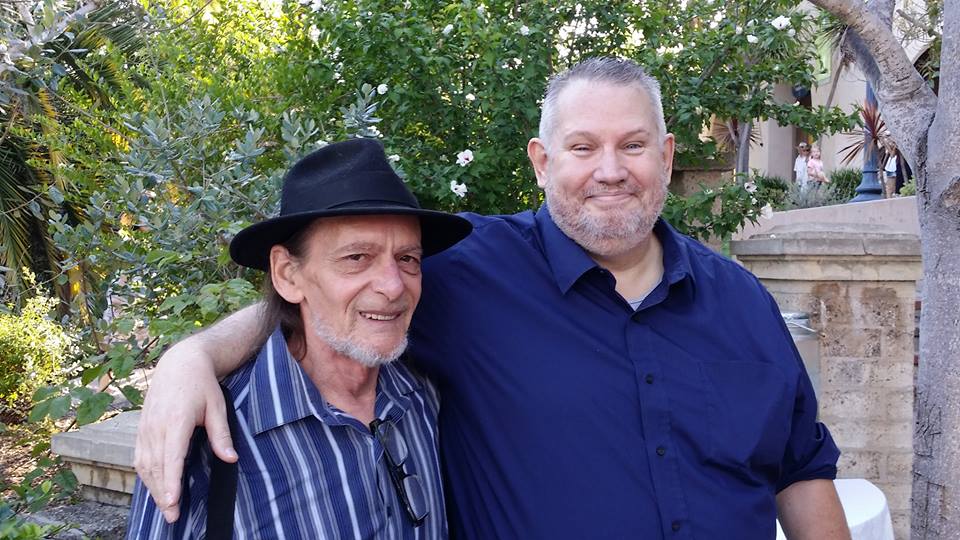
Dead Beat Poets
I make it to Main Street much too early and agree to meet my comrades in a bar called Sanctum. I have no currency apart from my still untried bottle of rye so I stand outside on the pavement near but not too near two young women smoking butts and laughing. ‘Merry Xmas’, I venture.
‘Merry fucking Xmas to you too’, is their reply. So I listen. A skill I am still mastering. The raven-haired beauty of the pair is recounting her love life to her friend. Telling her how she had met her intended’s eyes at work, a burning penetration in time and how happy she was that at least she knew, that she knew that she knew that there was an unstated passion, thrilling at the unstated, as yet unenacted attraction between them.
The bittersweet anticipation of passions yearned for but still yet to come.
I wanted to tell the dark-haired young woman how lucky she was to be free to express such yearning to another woman. Jealously, I wanted her to pity my poor lame masculinity and the political mindfield I had to traverse to even come close to sharing such a pure moment of true emotion and affection. But I didn’t. Who wants to hear another pitiful man’s story anyways? This was the year of raised female voices. Voices raised in anger, in righteous retribution for all the wrongs accrued., in demand of recognition. Voices of freedom insisting on justice, insisting on equal treatment without unwanted trespass.
Poor me, poor me, pour me another drink. . . .
So instead I pulled out my weapon of virtue, my great equalizer of man and woman, my bottle of rye from my bag and asked if ‘You ladies would like a drink”. “Hell yes”. And for a brief instant, I felt just like St. Peter patrolling the earth and giving comfort to lost souls.
This murdered the time until my wordly brothers finally arrived. We poured from the bottle into bright red dixie cups, swigging them down in the parking lot before entering the warmth of Sanctum Ale House to talk poetry, performance, and what we were going to do with the rest of our lives. This was beginning to feel a lot like a rendezvous of fallen angels pausing for a drink and brief reflection before hitting Hell.

Beatnik Approved!
There was no reason to take a picture or a selfie or even take note of the time. We drank, we talked, we tried to make each other laugh and we indulged in our common humanity; a focus on what we shared more than what we didn’t.
My mind spun back in time to the many drinking conversations I had with my late great friend, the writer David Halliwell. The only man I had ever met who had got drunk with Sam Beckett. So David told this story of buying a bottle of good Irish whisky and taking the train to London, from Yorkshire. Easily a 4-hour journey. On the trip, David got nervous opened the bottle and drank half the contents on the way down arriving completely cut up the King’s Road party where San Beckett would be. He did find Beckett apparently and immediately sat down to finish the rest of the bottle he’d brought. David got so drunk he couldn’t remember a word that Sam Beckett had said to him.
Last night, I told Chris and Alex about the year that David called me up to join him for a Xmas drink and The Bull Tavern in the little North East Oxfordshire village of Charlbury, whose village council insisted on calling it a town because it had 4 pubs, a pharmacy and a post office.
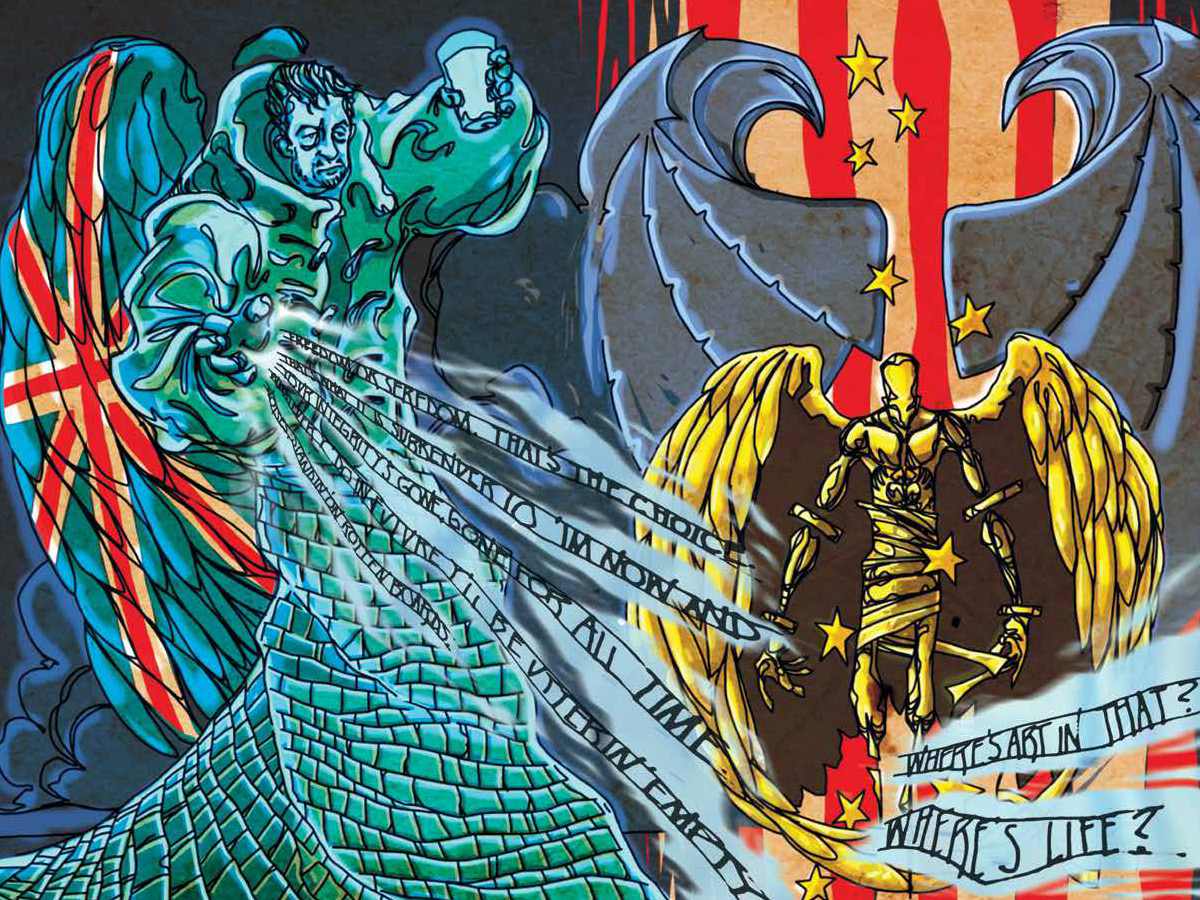
I walked down the unpaved bumpy road to the tavern, past the Egyptian cottage with the papyrus reeds of Isis, the Goddess, not the terrorists. I reached The Bull pub and Inn, Opened the heavy oak door and walked into a movie. The pub was nearly empty save for the bar that featured David on his bar stool holding court with his mates. Only his mates were images burnt on my retinas since childhood: John Hurt, Ben Kingsley, David Warner, Freddie Jones and his son, then unknown now better known than him, Toby Jones. I remember blinking in disbelief. I might as well have walked in on Lewis Carrol, Tolkien and CS Lewis downing pints all who had also frequented this pub some hundred years previously.
I remember David smiling, laughing his phlegmatic cough and motioning me over to introduce me to these faces from the screen. “This is Igor, he’s another writer; he’s a Yank but he’s alright”. I was just another writer in the company of actors, everyday workers taking a break from toiling in the star-maker factories behind the popular film. I was handed a bulbous goblet of glowing ruby wine and the rest is hard to remember. But I do recall making them laugh and David Warner towering over me and reminiscing about his one appearance in a two-part Star Trek opposite Patrick Stewart that had earned him enough to comfortably return to the stage for 7 continuous years. Apart from young Toby, these were board strutting actors; indifferent and virtually contemptuous of their movie work save for the vast sums Hollywood paid them for peddling their trade of packaged emotions.
The next year most of them would be dead, David Halliwell included. I would empty his cottage with a Scottish actor of his while his Yorkshire sister wept inconsolably on his stairwell. In England, people let you weep and leave you to the dignity of your grief out of respect for the exceptional display of emotion. If you openly weep in England its because the pain is so hard that you really can’t hold it in.
Back in the Sanctuum, I explained to my companions how David had taught me the true meaning and value of the literary arts, which for David included actors who tell stories with their faces. Storytelling’s place in the human universe, keeping the stars locked in their firmament and the cosmic spheres in perfectly balanced and meaningful rotation. David Halliwell wasn’t famous. He died a virtual pauper, alone, estranged from his sister, a Yorkshire man with an RSC accent from wanting to be an actor, who wrote every day of his life before heading down to the pub to argue with me.
But he was a great success, albeit not by any kind of American Calvinist standard. Rather he succeeded in staying true to his art. He never sold out to better-paid mediocrity. He stayed true to his art, to himself and he survived with the respect and admiration of his fellow artists. When he died, I wrote and read this eulogy at his memorial, after Harold Pinter came up from Hampstead to say a few words about his departed friend. As did Stephen Frears and Scott Hampton (author of Les Liaisons Dangereuses).
I read this poem to David to my friends Alex Bosworth and Chris Vannoylast night. And in my mind, I went hunting and visiting my own xmas ghosts to remind me of the true joys of this season.

Daedalus Afraid to Fly
David, you bastard, you’ve left me
Understanding here alone,
With only these words falling out of my hands
When it is yours I want to hear again.
Words of your mastery, not mine.
So what was all the swearing about then, David?
What were all those Northern fumes really burning from?
I told you the songs of Yorkshire would never play in LA
Or London for that matter):
Two cities equidistant from your Yorkshire mother.
Tell me, David, why didn’t you just sell out?
You could have bought yourself a much better pint of beer
With all that money for old knotted ropes and
Still, have coughed up the phlegm to laugh at us all.
Is death your idea of some kind of joke?
Did you finally track down the film rights to Malcolm, David
And cash them in?
Are you really, secretly living in Barbados,
Making beautiful women miserable?
To think of all this wasted sorrow and
Empty glasses of beer.
You did say that you always wanted to visit other places.
But Daedalus, you were afraid to fly.
If you had been born upside down in America
You would have been a southern writer living in some Northern town.
Spilling your southern drawl over a rum and coke in a New York City bar.
Sitting elbow to arm with Williams, O’Neill, Baldwin and them all.
Your America was always an America of the mind.
So why fear the flight?
Your America David was where Charlie Parker
was forever sharp shooting pool with Humphrey Bogart
in some room behind a neon-splattered bar
Where Chet Baker never jumped or fell but flew, man!
He just flew away.
Just like you.
So you’re off then, David?
Back up the bumpy road,
Turning the corner around the Little Egyptian cottage
Navigating the reeds of Isis, Long past the close of time.
A brown duffle coat ship, bobbing on an unpaved surface,
Weaving a few well-spoken thoughts into your
Captain’s cap.
Can you tell me, David:
Were you X-Centric, or
Merely Eggs Essential?
How about this time I tell you, David:
The spark was always there.
But not like Daedalus, like Prometheus.
The living punishment of Truth,
Chained to your bar stool,
That eternal pint of Carlsberg lager gnawing at your liver.
Like Prometheus David,
The spark is always here.
For the late, great David Halliwell; poet, playwright,
author of Malcolm’s Struggle Against the Eunuchs.
I can only miss you when you’re gone.
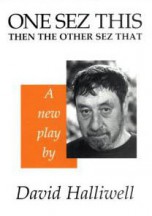
Mysticism: The Phenomenology of Truth

Science makes no philosophical claim to ‘Truth’ but instead provides useful approximations based on its ongoing peer-review methodology. What is reliable  information by way of science is the result of similar enough results from replicated experiments that are strictly controlled and abide by the parameters established by a long succession of scientists. Their hand-me-down story is called epistemology.
information by way of science is the result of similar enough results from replicated experiments that are strictly controlled and abide by the parameters established by a long succession of scientists. Their hand-me-down story is called epistemology.
In the end, all it tells us is that under such and such of circumstances, it is most likely that these results will be achieved regardless of who you are or where you are as long as you abide by the parameters of the experiment. This consistency of results is what allows us to make engineering choices based on scientific ‘truths’.
When people say they believe in scientific ‘fact’, they usually mean engineering applications of the science. No one bothers to question the science behind the combustion engine as long as their car runs reliably.
But the key phrase here is ‘approximations of truth’. More absolute truths, the understanding of ourselves and the objects in themselves requires a different kind of perspective outside of the scientific framework; one that takes the observer and the point of observation into account in the observation.
This involves a separate methodology as structured as scientific methods but with different aims and thus different kinds of conclusions. The overlooked discipline is that of Phenomenology, coined by the mathematical genius turned philosopher and teacher of the great Martin Heidegger, Edmund Husserl.

Husserl believed that our understanding of phenomena was completely based on our disposition towards the apperception (or the incorporation of our perceptions into our existing body of knowledge i.e. our understanding of the perception). Although a mathematician, this view of truth being determined by the perception of the observer as much as the thing-in-itself which can never be truly perceived apart from its set of traits and characteristics is a natural extension of Kant’s Idealism, for which Time and Space are far from objective physical phenomena and more akin to categories of perception. In effect, shared psychological states of awareness.
This is precisely where Phenomenology collides with post-Modernism, Einsteinian physics (Relativity) and Freudian mapping of the unconscious (everything that we don’t know or did know but forgot).
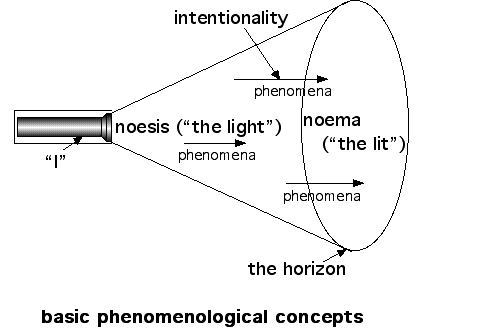
This post-modern relativism owes a great deal to the mystical and alchemic traditions to which it shares a common ancestry with science. Science, after all, derived from mystical and alchemic experimentations by mainly monks who upon separating from the spiritualism of the Church, (thanks to that first and great secular martyr, Giordano Bruno), continued their quest for god’s Truth.
Mysticism (unlike Spiritualism), is not superstitious; rather it engages with the world in pursuit of solving mysteries unknown and unsolvable by science. Mysticism poses questions science would never bother to ask and then attempts to answer them. Metaphysical questions such as ‘Who am I’ outside of my name and a social construct? Why am I here and who really lies behind the many masks upon mask that I wear and why do I wear them in the first place?
Psychoanalysis and Psychology at their best are not sciences at all, they are merely enquiries into the nature of the mind (although the current bias towards quantifiable conclusions might make one think otherwise). They are a result of mystical enquiries into the nature of the mind and how it shapes our most intimate and fundamental perceptions of the world we live in; the space in time we briefly occupy before dying. Medicine is yet another example of a supposed science that in fact is based on a field of knowledge that predates scientific methodology.
Nor is mathematics strictly speaking a science and yet it is by far more predictive of the unknown and unexperienced than science could ever hope to be.
I feel that this is a very relevant issue in the face of the current data-fixation of human experience as well as the current bias of valuing quantifiable truths over qualifiable ones. Just because you can count something accurately doesn’t mean you understand it better.
The truth is never in the data as such, it’s in the interpretation of the data, as long as you’re smart enough to factor in the interpreter.
I’ll take a breath now;
And recall who I am.
Essay on Everyday Zen

 I think this is the closest I can come to describing the Zen disposition. I say disposition because too much is made of practice and the philosophy of Zen when all are merely aids to assist in the unravelling of illusion and self-deception. Zen is not an acquisition of skills, rituals, garments or ideology; instead, Zen is relinquishment. It’s a reminder to keep paying attention. Not acquiring but letting go: unravelling, stripping away layers of calloused skin, leaving your baggage behind and not looking back over your shoulder. In the words of the bard:
I think this is the closest I can come to describing the Zen disposition. I say disposition because too much is made of practice and the philosophy of Zen when all are merely aids to assist in the unravelling of illusion and self-deception. Zen is not an acquisition of skills, rituals, garments or ideology; instead, Zen is relinquishment. It’s a reminder to keep paying attention. Not acquiring but letting go: unravelling, stripping away layers of calloused skin, leaving your baggage behind and not looking back over your shoulder. In the words of the bard:My toes too numb to step”.
Awareness is larger than the body.
Mirror, Mirror


The Infinite
What I see is the reflection of my eyes
In every direction that I gaze.
Two mirrors face each other
Only the dust can tell the difference.

IS SHE AVAILABLE? Get My Book and FIND OUT.

NOTHING has prepared you for This. Nothing ever will.
Because whatever is happening Now has never happened before.
This is a web-nurtured collaboration with 27 artists, sculptors and musicians from the world of Comics, Fantasy, Fine Art and Jazz, including Bill Sienkiewicz, David Lloyd, Liam Sharp, Glenn Fabry, Shaky Kane, Lars Henkel and the cutting edge sculptural typography of the highly acclaimed book designer Rian Hughes.
This illuminated book is a contemporary Dante’s Divine Comedy; a journey through the confessional landscape of a masculine identity. It uses poetry to construct a narrative that explores themes of death and loss, sex and love, and the modern American and Jewish identity design: by the UK’s eminent graphic designer, typographer, illustrator Rian Hughes.
The music is composed and produced by iconoclast, ex-Israeli, Middle-Eastern jazz virtuoso Gilad Atzmon, along with five other jazz artists.
Written by San Diego native Igor Goldkind, this illuminated book will revolutionize the way you view poetry by meshing comics, art, music and animation in a truly unique way. It uses poetry to construct a narrative that explores themes of death and loss, sex and love, and the modern American and Jewish identity. The book is available for download on the iTunes Store and Google Play, as well as in a 166 page, fully illustrated in colour hardbound edition available ORDER HERE.
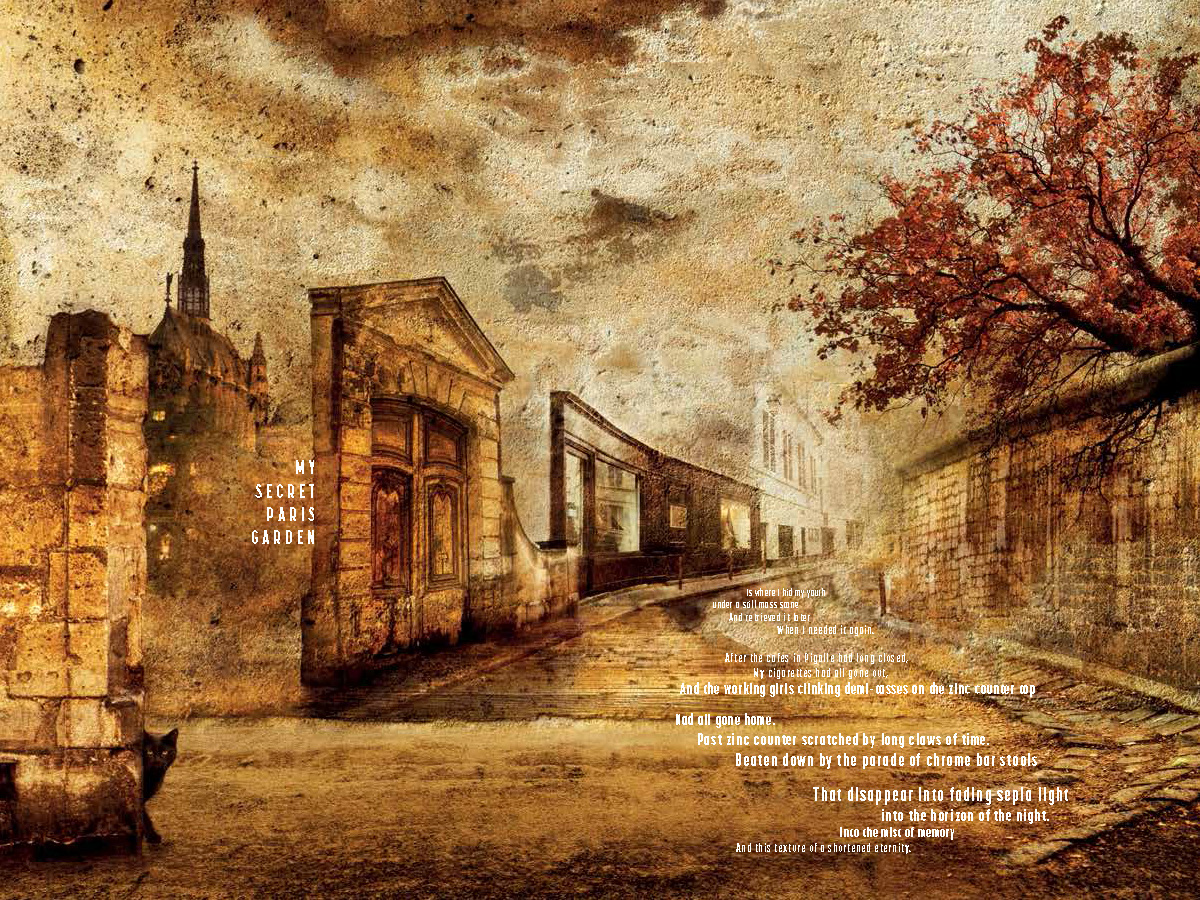
The eBook edition pushes the edge of what is possible with present EPUB3 technology. It is not an App, it is a true book that marries pop art, comics, avant-garde, jazz, spoken word poetry, video and animations, and type design in a manner that we have not seen before IS SHE AVAILABLE? has the feel of an artefact from the near future – a seminal work of a new genre-fusing poetry, graphic art, music, and animation.
Sample interior pages:
IS SHE AVAILABLE? RRP is $34.95, SHIPPING INCLUDED
Educational Discount for Students and Teachers: $29.95
Both deluxe hardcover edition PLUS animated and musically scored eBook App edition of Is She Available? bundle: $39.95
Go to http://Paypal.com/issheavailable/ and place your order directly through PayPal with all Pay Pal assurances and protection.
Shipping included in orders within the US and its territories.
If you are in Britain and/or Europe, please contact my European wholesaler Fanfare Productions who will take your order and dispatch to your address the same day: stephen@fanfareuk.demon.co.uk
Reviews ? Sure We Got Reviews. Why You Wanna See Them? Be my guest.
“Igor’s “Illuminated Book” is like a new genre. It is a wonderful ekphrastic expression; a fusion of the arts.” — Poet Mel Takahara
“His collection Is She Available? has the feel of an artefact from the near future – a seminal work of a new genre-fusing poetry, graphic art, music, and animation.” —(San Diego’s) City Beat
“Is SHE Available?” is an experiment, and reading it feels more like an act of discovery… nonetheless there’s a thrill to scrolling through its pages. It’s an ambitious step toward what digital media can (and will) be.”—The Chicago Tribune
You Tube samples: https://www.youtube.com/playlist?list=PLRnmT_aE0acoowdNBvFtK_VW2OkNN2wWp
SoundCloud samples : https://soundcloud.com/igor-goldkind/sets/is-she-available-spoken-word
The 166 full colour, fully illustrated hard cover deluxe edition is available in discerning and eclectic independent bookstores everywhere. Including Fahrenheit 451 in Carlsbad, Soulscape Bookstore in Encinitas, the Upstart Crow in San Diego, Verbatim Books and Mysterious Galaxy also in San Diego, City Lights and the Cooperfields chain in Marin County and Sonoma County, amongst a growing number of independent book stores.
Order direct from PayPal and shipping is included!
https://www.paypal.me/issheavailable
Sleepy Mind; Awake Mind

And Zen-some!
The only way to explain Zen is by describing the sleepy mind. The sleepy mind describes a tree in terms of attributes and data: the number of leaves, the leaf shape, the number of branches, thickness of the trunk, the colour of bark. Which birds make use of the tree etc.
All these observable and measurable attributes are assembled as data by the sleepy mind and voila! the sleepy mind thinks it knows what a tree is. The sleepy mind can give arguments with citations about the validity of its data. The sleepy mind works well with other sleepy minds.
And the sleepy mind isn’t totally wrong, the data it compiles in reference to ‘tree’ are all real and quantifiable features of the tree. But no matter how exact or comprehensive, the data is not the tree nor even the experience of the tree.
The awoken mind merely says “Look, a tree”, and points.
Because there is no data that conveys the experience of that tree in the moment of your apprehension. The awoken mind, sees the leaves, the branches, the colour of the bark, the thickness of the trunk, which birds fly in and out of the tree as much and as well as the sleepy mind does.
But the awoken mind also sees that the spaces between the leaves are part of the tree. The negative space surrounding the tree. The unseen roots spread beneath the ground are part of the tree. The sunlight reflecting off the green of the leaves are part of the tree.  The seat waiting to rest your back against the trunk is part of the tree. The awoken mind ‘see’s the tree; the form of the tree; the tree itself in all its ‘tree-ness’, the tree as a child sees a tree; not what the sleepy mind contrives to substitute as its surrogate.
The seat waiting to rest your back against the trunk is part of the tree. The awoken mind ‘see’s the tree; the form of the tree; the tree itself in all its ‘tree-ness’, the tree as a child sees a tree; not what the sleepy mind contrives to substitute as its surrogate.
I think this is the closest I can come to describing the Zen disposition. I say disposition because too much is made of practice and the philosophy of Zen when all are merely aids to assist in the unravelling of illusion and self-deception. Zen is not an acquisition of skills, rituals, garments or ideology; instead, Zen is relinquishment. It is a reminder to keep paying attention. Not acquiring but letting go: unravelling, stripping away layers of calloused skin, leaving your baggage behind and not looking back over your shoulder. In the words of the bard:
“My senses have been stripped, my hands can’t feel to grip
My toes too numb to step”.
 Buddhists will talk about the Buddha-nature as universal, the same as our original nature. Don’t listen to them. The face that first looked up at your mother’s face is still there, submerged and (sometimes suppressed), within you. All that Zen suggests is that we are encumbered by needless worry, anxiety, expectations, daydreams and nostalgias that have buried your true self under the rubble of your crumbling castle and keeps you from seeing the world and your place in it, with any clarity.
Buddhists will talk about the Buddha-nature as universal, the same as our original nature. Don’t listen to them. The face that first looked up at your mother’s face is still there, submerged and (sometimes suppressed), within you. All that Zen suggests is that we are encumbered by needless worry, anxiety, expectations, daydreams and nostalgias that have buried your true self under the rubble of your crumbling castle and keeps you from seeing the world and your place in it, with any clarity.
We are all distracted by anxieties and worries about money, about jobs, about partners and children. That distraction is manufactured by the powerful in the society we live in to keep us consuming, acquiescent and very sleepy! It doesn’t matter if you meditate or not; if you read poetry or not; if you drink tea or practice martial arts or not. It doesn’t matter how you get there or what you wear; just that you wake up and experience the miracle of persistent and unwavering creation. The universe is created, then destroyed then resurrected millions of times a second, faster than you can blink; so try and keep your eyes open!
I leave you once again with the immortal words of the Nobel Prize laureate:
“Then take me disappearing through the smoke rings of my mind
Down the foggy ruins of time, far past the frozen leaves
The haunted, frightened trees, out to the windy beach
Far from the twisted reach of crazy sorrow.
Yes, to dance beneath the diamond sky with one hand waving free
Silhouetted by the sea, circled by the circus sands
With all memory and fate driven deep beneath the waves
Let me forget about today until tomorrow.”
– With Compassion, Igor Goldkind, 2017
Please feel free to share and copy this.
I’m just trying to help anyone who’s read this far.
Crime Against Our Own Humanity

People have been asking me why I chose the risk of first publishing a book of poetry before publishing my collection of short stories THE VILLAGE OF LIGHT and my first novel, THE PLAGUE. Why launch a writing career on the back of such a neglected and unpopular form of literature?
My first answer has been that as a keen admirer of the actor William Shatner, I wanted to emulate his career; first as a starship captain (in my mind), and second, as a genius of the Art of Spoken Word.
But the non comedic reason is worth explaining here: throughout every major epoch of human achievement and civilization,
reason is worth explaining here: throughout every major epoch of human achievement and civilization,
Poetry has maintained a major position in the spectrum of human arts; true across society, cultures, oceans and centuries.
Until now.
This dawning century of technological, scientific and artistic achievement; this era we currently reside in, is the exception to the human rule.
We have exchanged our ability to appreciate Poetry for other more comfortable and lascivious sensations. We have unlearned the sensibility to immerse ourselves in the healing waters of an art that we, as a species have grown like a medicinal herb in the human garden, to salve the pains in our souls and our minds .
By turning our backs on those warm healing waters we have damaged ourselves. We are all in dire need of rehabilitation.
And that is exactly what Poetry mystically, delivers.
Poetry sets you free, for free!
If you know how to notice and pay attention to the subtler colors in the spectrum of your mind’s cognition.
Which is a Poetic thing to say in that it is both metaphoric and literal at the same time.
Poems allow the mind to synthesize (reconcile), apparent opposites and to understand the deeper resonances of our human experience, in the simplest of terms, arranging words like pebbles on a dry river bank and in the broadest, to enter the harmonic rhapsody of our humanity and its sense of rhythm in this universe.
That rhythm is the breath, which is true to us all who are living. Poetry is the sound of our breathing in this world. If you want to know who a people strange to you are, read their Poetry; the words they have chosen to express themes, that persist for us all: Birth, Death, Love and the swirl of illusions inbetween.
Poetry is a drastic intervention meant to make you better. Not just feel better, but actually see, understand and *be* better than you are, which may feel strange at first.
Only bad poetry is comfortable. Trying to be the best that you are, to overcome ones self, may take more than one lifetime to achieve. But so many Poems offer roadmaps of the soul. Guidebooks from which you can detect what is universal about humanity, about the human subjective experience, and your place in this present.
So that is why I chose to launch my writing career, with my current publisher (Chameleon), with a book of Poetry:
You can order a signed and dedicated copy of my book IS SHE AVAILABLE? directly from PayPal Here
I chose to publish Poetry first specifically because it is the form of literature that has proven to be least popular at the moment, as this marketing study details.
I’ve always stood up for the underdog, be it in life or publishing. I stood up for Comics when they were largely looked down upon as adolescent drivel. I just never thought to myself in all my years on this earth, that I would need to stand up for Poetry, because it had now succumbed to more dominant dogs.
This is a great shame to me, as a reader of great Poets from virtually every culture and time period. I mean with Poetry it really is where all of humanity meets, outside of time and space. The very center of our collective space, where language is. Each one of us is both here and there: at the edge of meaning. The words of the poem are are written by and read by the singular mind that spans all of us to that edge of comprehension. Poetry is the very understanding that we seek, in our selves and in others.
Poetry is the very understanding that we seek, in our selves and in others.
It is passive crime against our own humanity to let this art subside, due to laziness, neglect and superficiality.
So do your soul a favour and read a poem. Not just mine, any poem will do. Any Poem will set you free, for free; or at least at the modest cost of your attention.
In My (always) Humble Opinion, ofcourse.



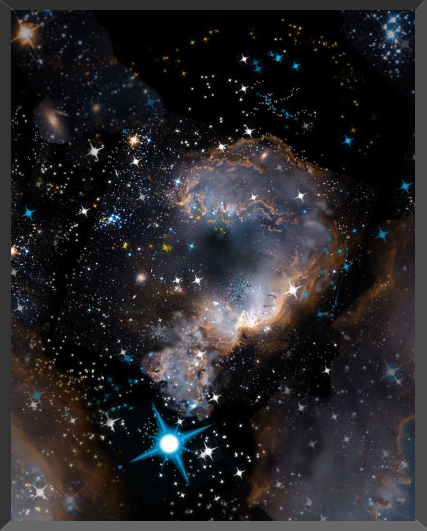
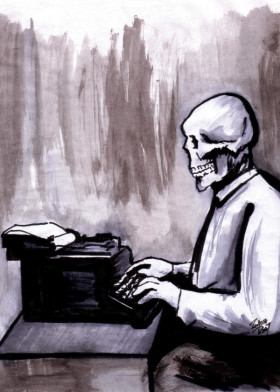




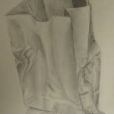












Coming Soon!
Share & Disseminate This With Your Friends
January 9, 2021 | Categories: art, book launch, books, comments about poetry, digital insurgency, Existentialism, Faith, Healing, literature, Meaning of Existence, Meditations, mental health, Mindfulness, new poetry, Paper Bag, physics, poetry, Poetry as therapy, Poetry Therapy, politics, Self-Therapy, spoken word, story-telling, Suicide, Therapy, Zen | Tags: Democracy, Donald Trump, philosophy, poetry, Poetry Therapy, Therapy | Leave a comment